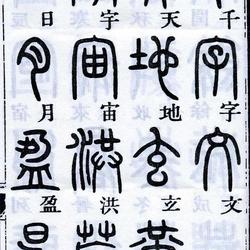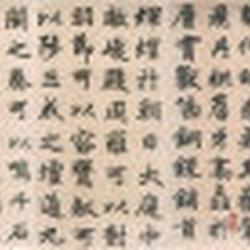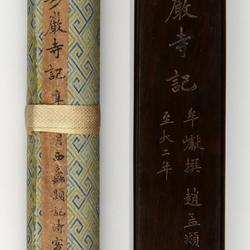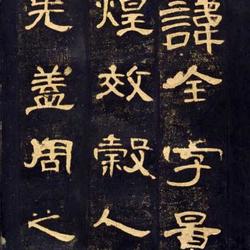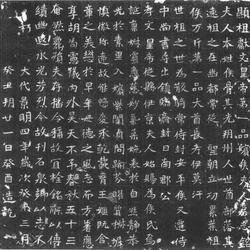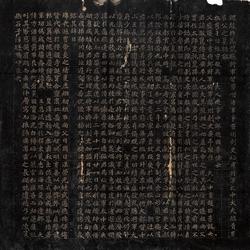The full name of "Yi Ying Stele" is "The Monument of the History of Yi Ying, the Prime Minister of Han and Lu" or "The Monument of Confucius and Confucius". It was engraved in the first year of Yongxing (15th year) of Emperor Huan and is now in the Confucius Temple in Qufu, Shandong Province. The monument is 3.6 meters high and 1.29 meters wide. There are 18 lines of official script, 40 characters per line, no quota. Later, there were two lines of inscriptions by Zhang Yagui from the Song Dynasty. The content of the inscription is that Lu Xiang Yiying wrote to the Han court on behalf of the descendants of Confucius, requesting the appointment of a low-level official who would master the ritual utensils of the Confucius Temple, with the rank of "Hundred Days of Death", and proposed the conditions for this official's appointment.
"Fen Li Oocun" said that "the characters are particularly majestic, like a crown and a jade, which is awe-inspiring. Zheng Yu, a recent man, is happy to see it." The inscription is in the Qin Dynasty style, with graceful strokes but no loss of strength and structure. It is flat and neat, with strict rules, high and classical style, strong and charming characters, and the overall style is dense and elegant, making it a famous Han stele. Although from the perspective of artistic creation requirements, works such as "Yi Ying Stele" appear too neat and formal, it is more appropriate and convenient for beginners to start from here to master the structure and pen-using skills of official script. Therefore, people generally believe that "Yi Ying Stele" "Yi Ying Monument" is"The one who can learn the most from Han Li".
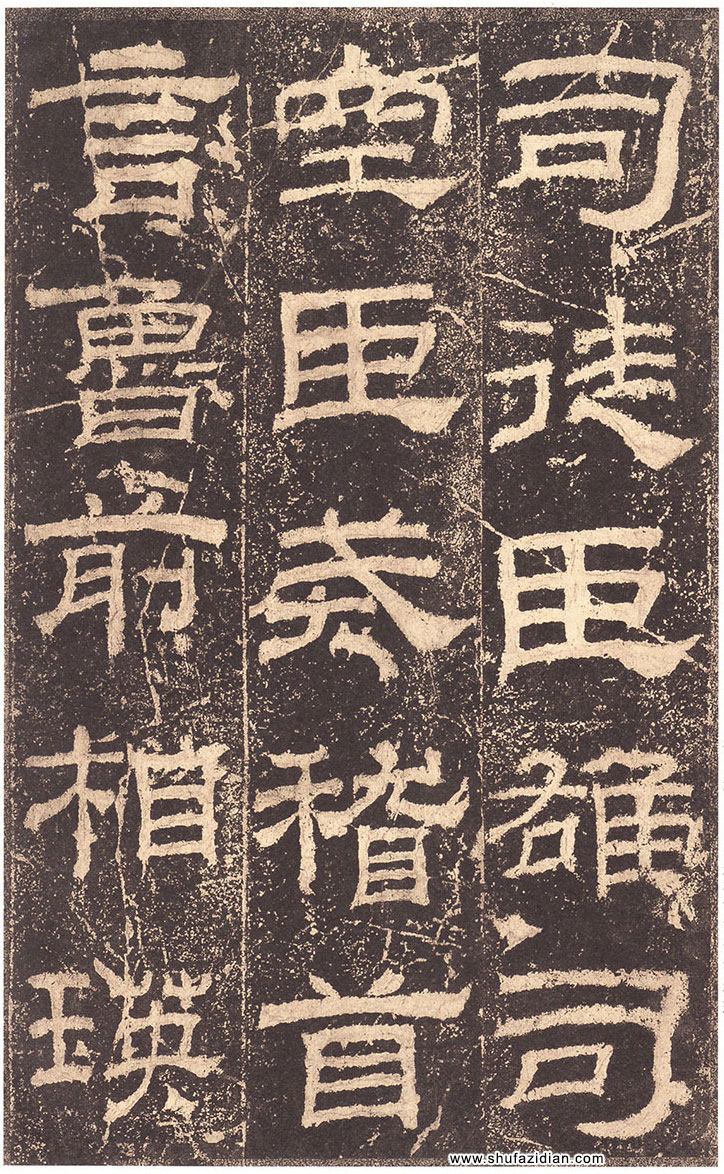
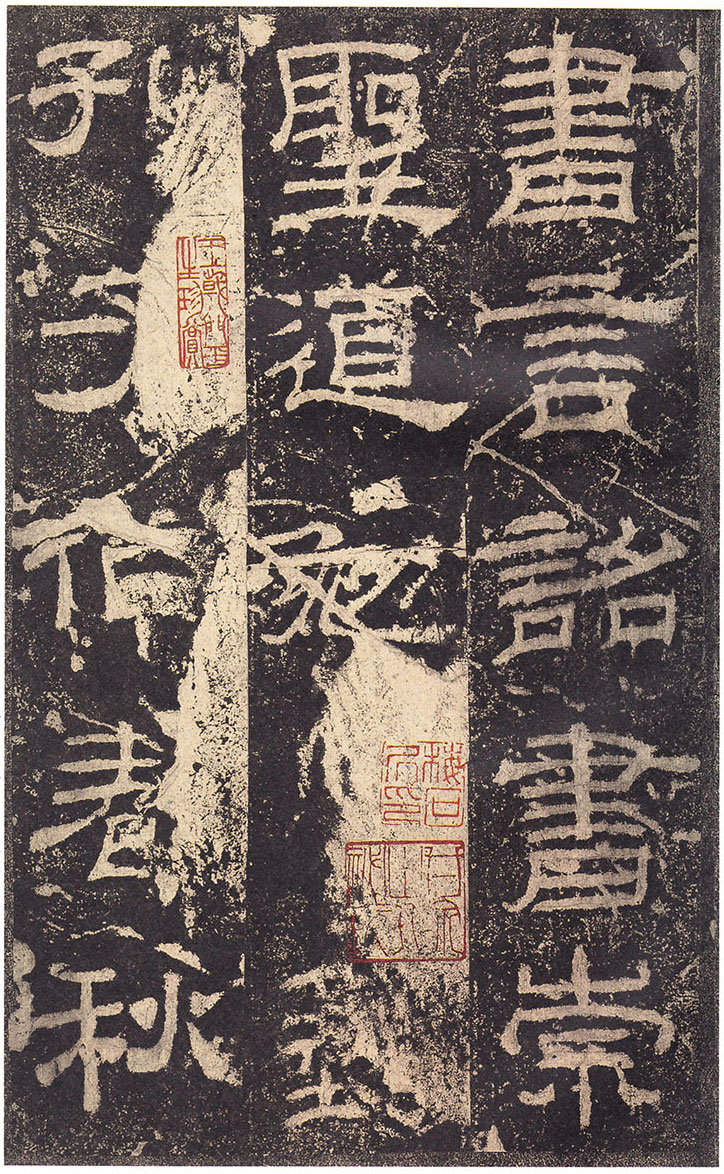
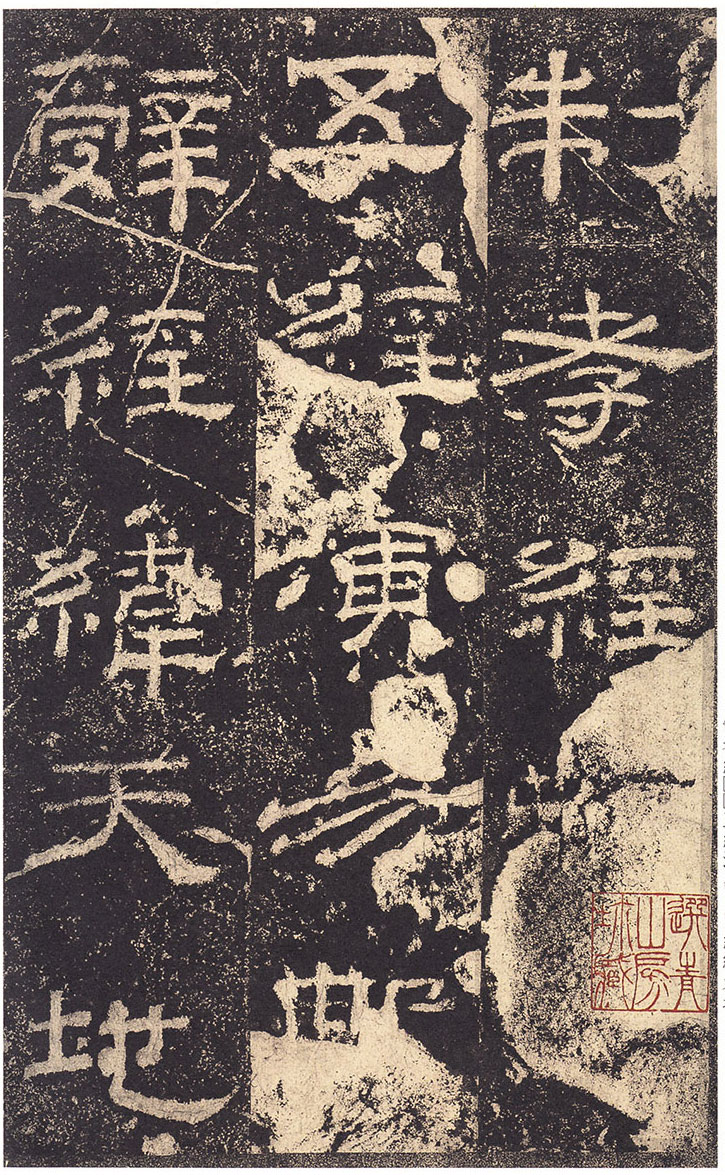
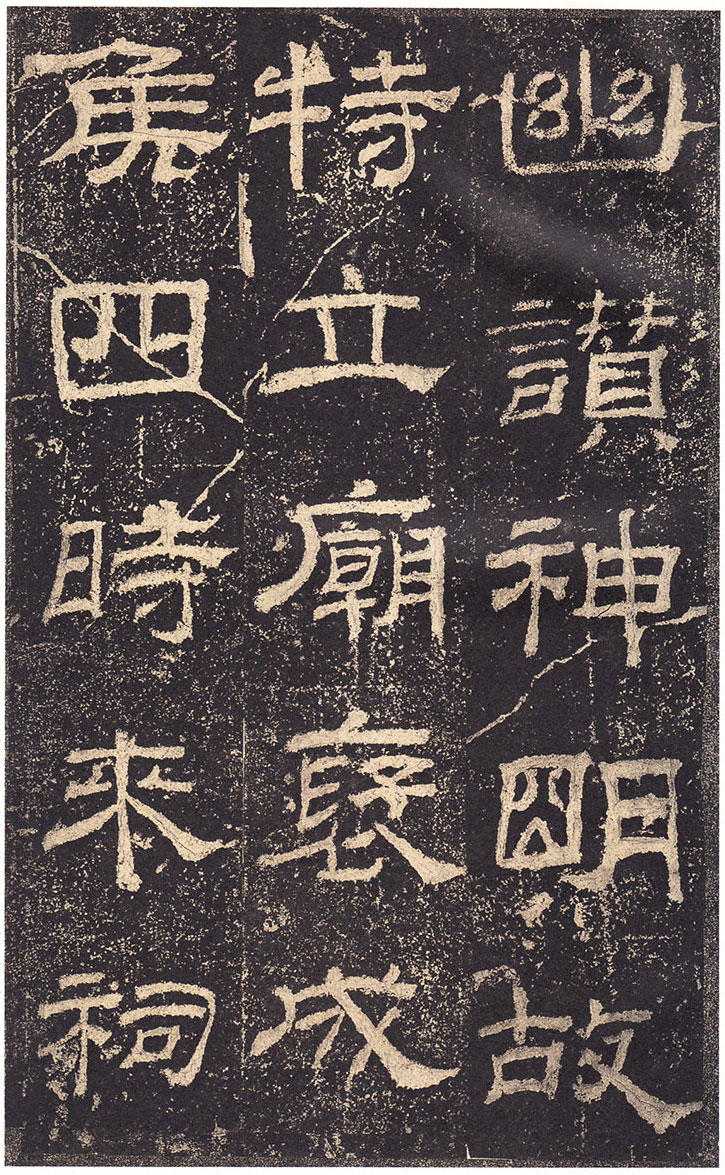
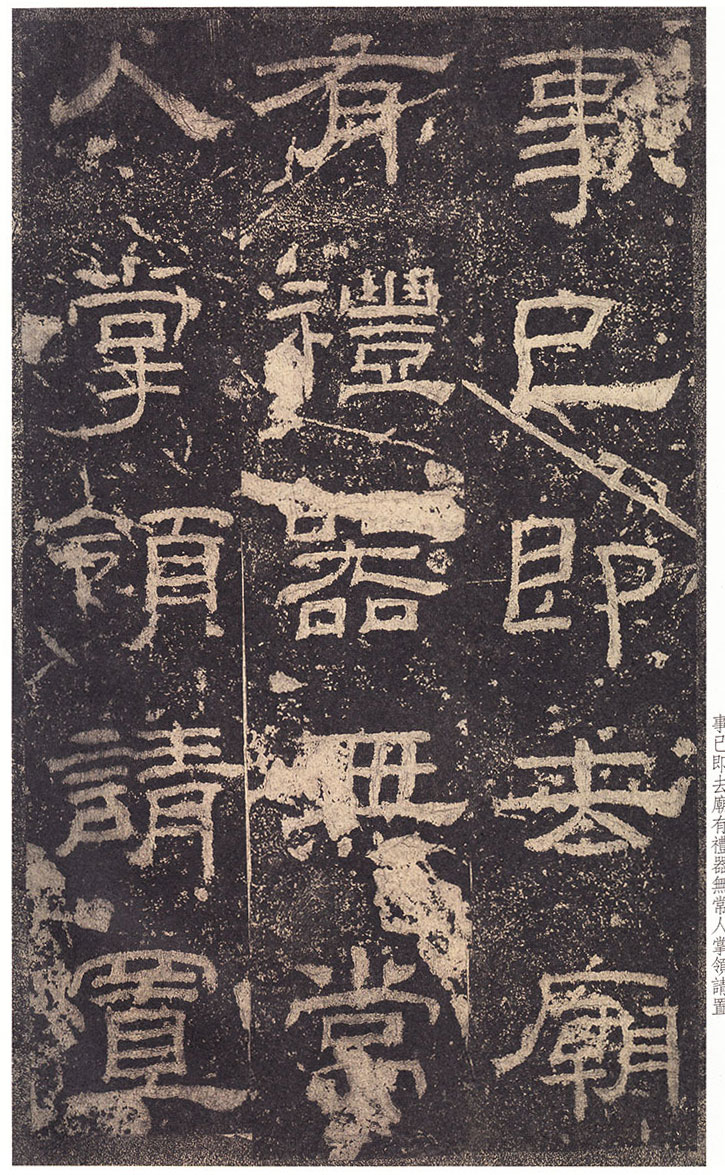
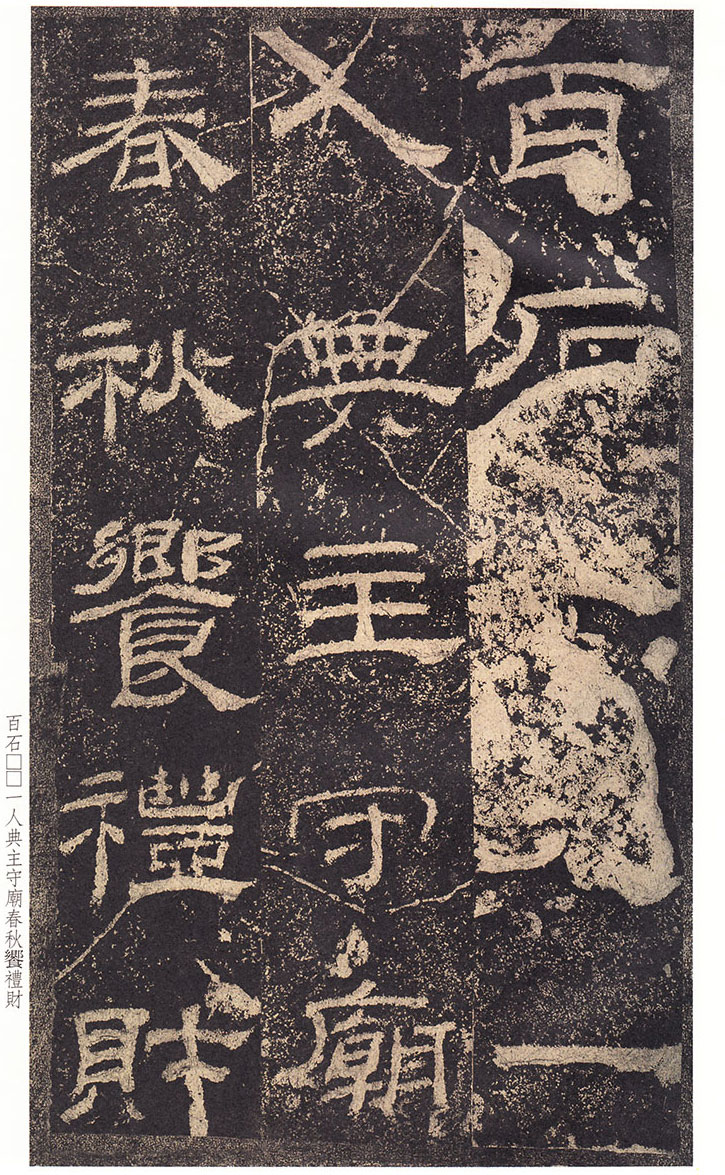
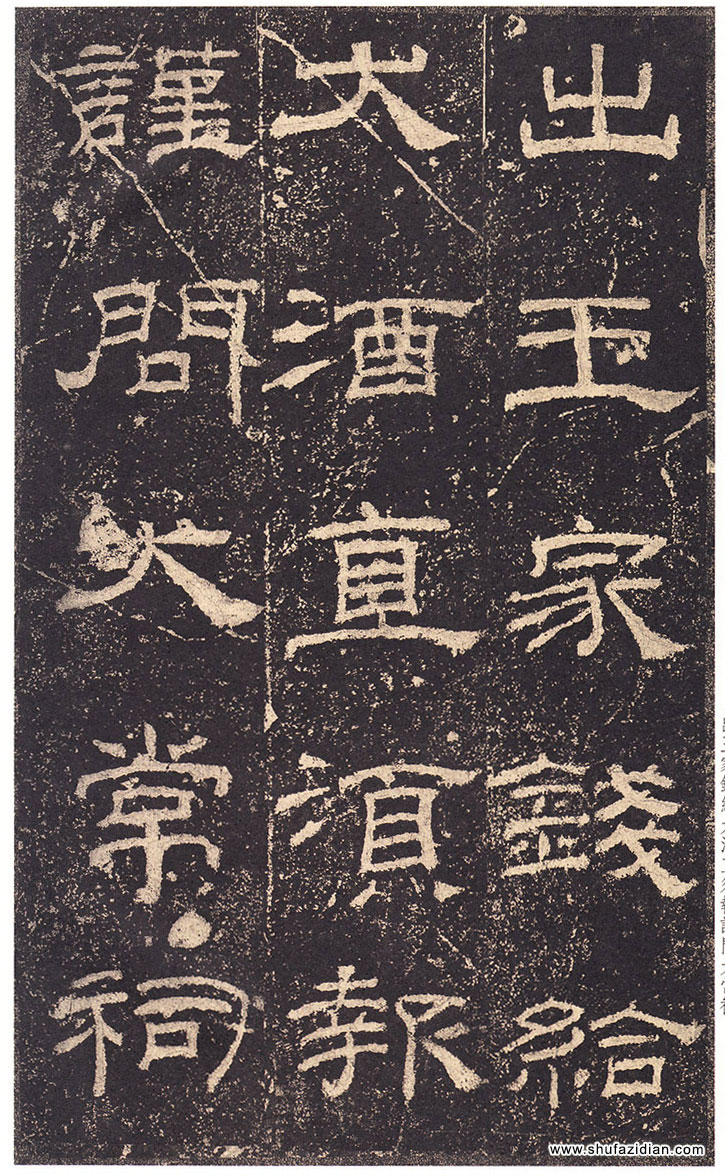
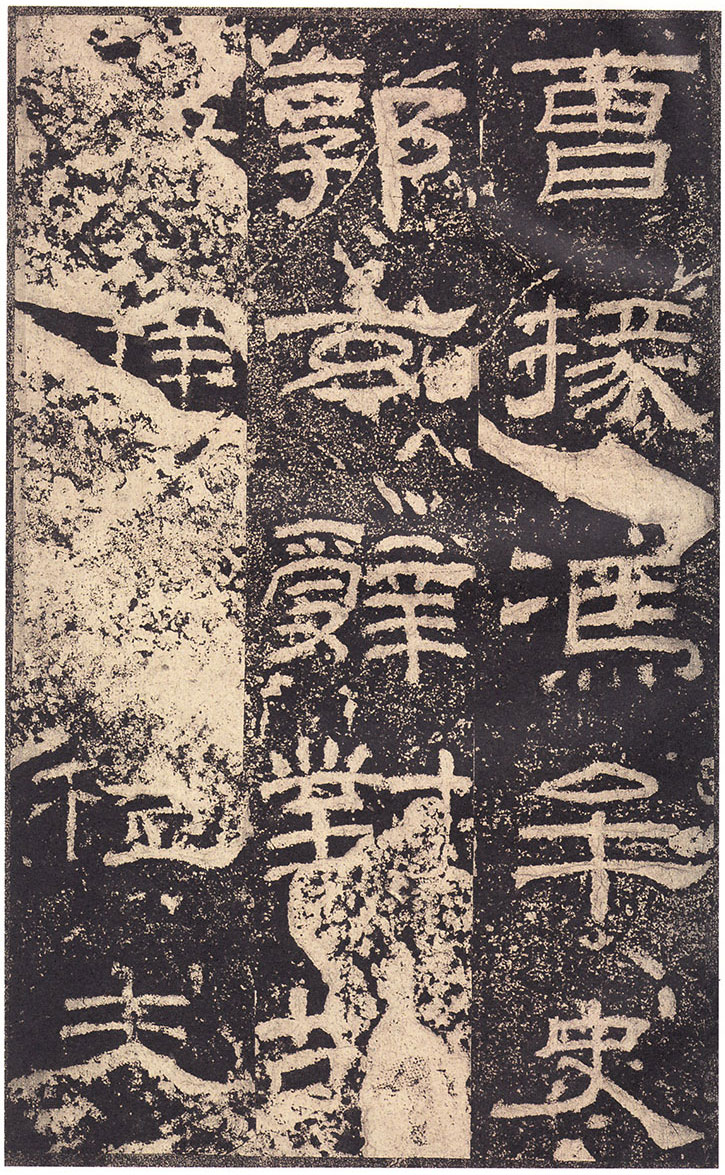
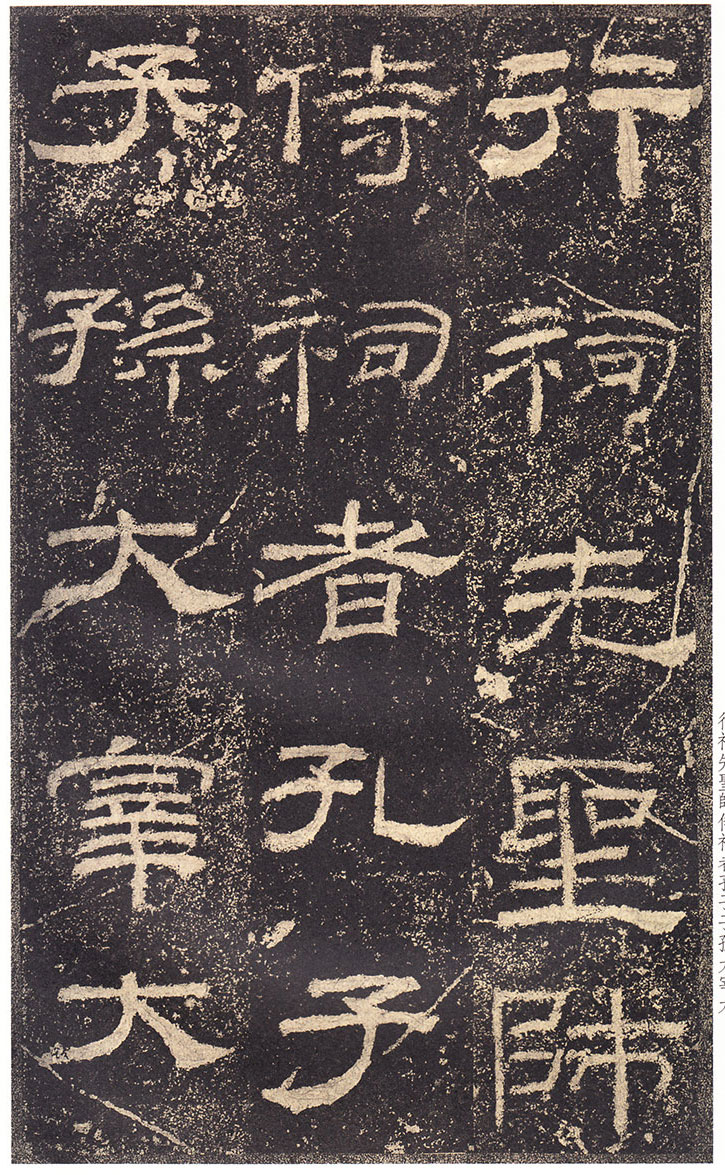
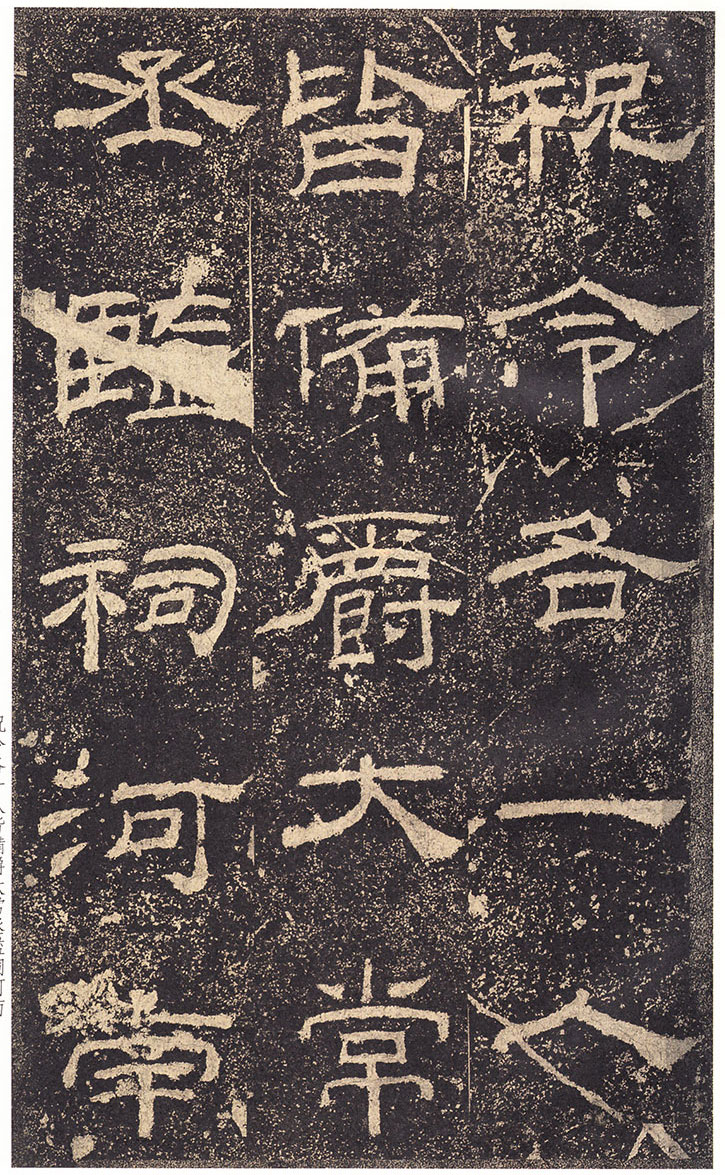
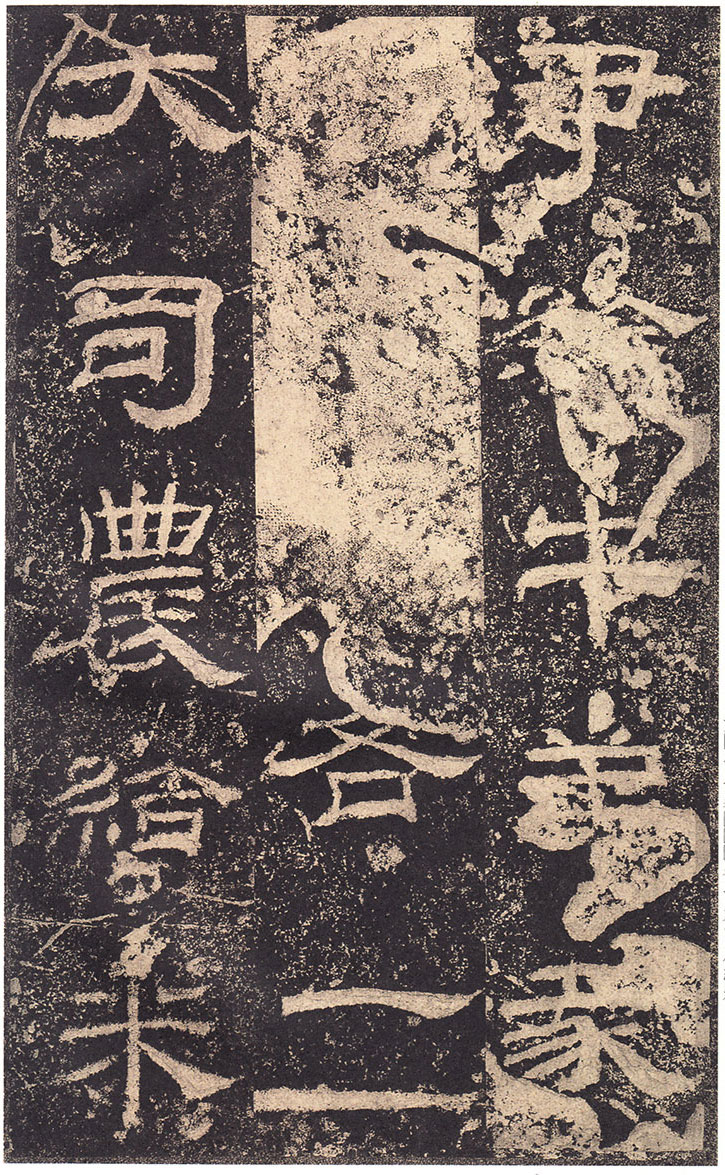
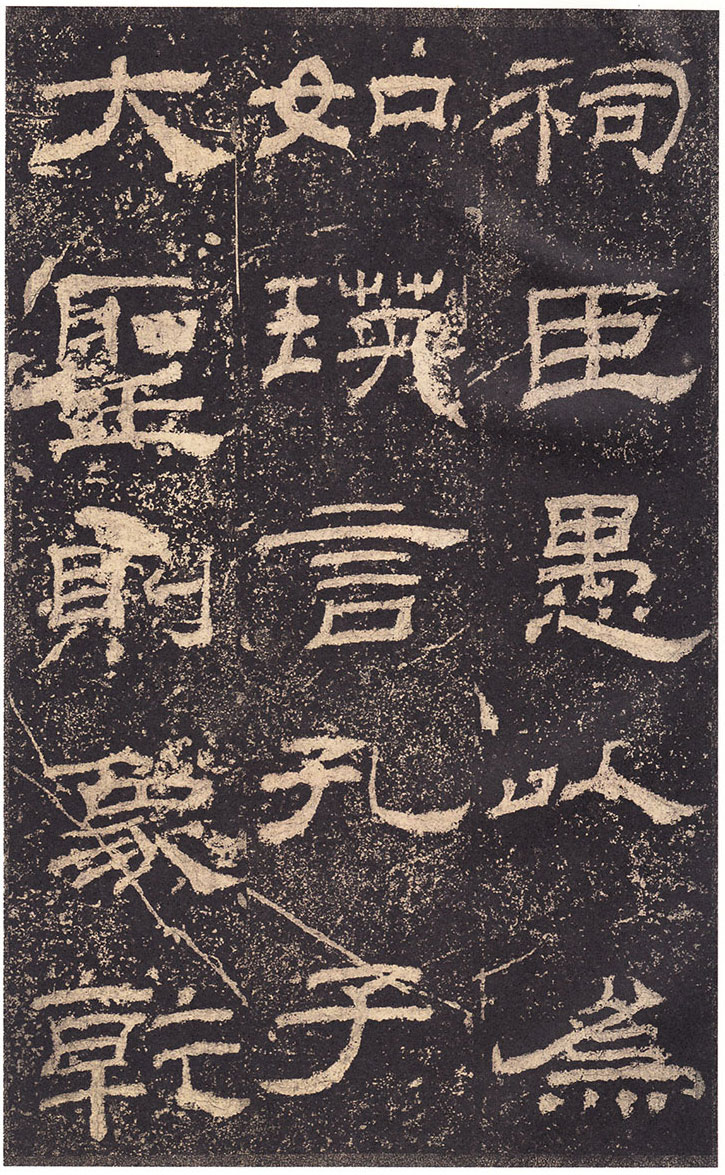
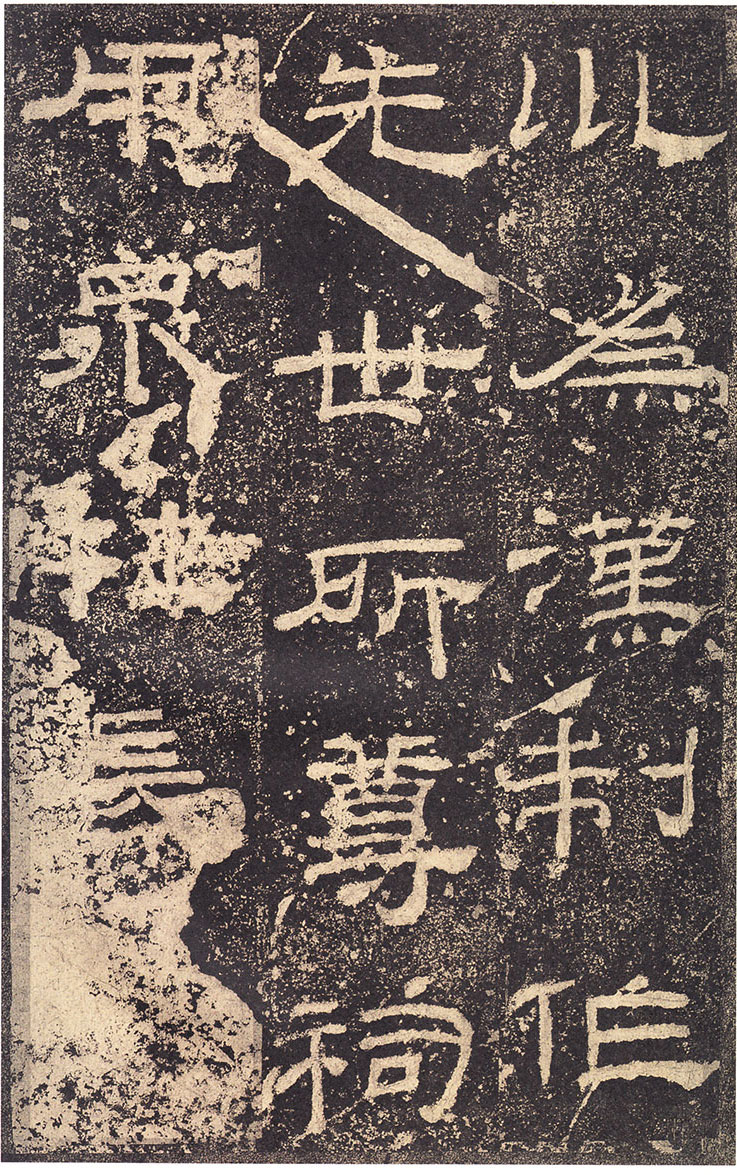
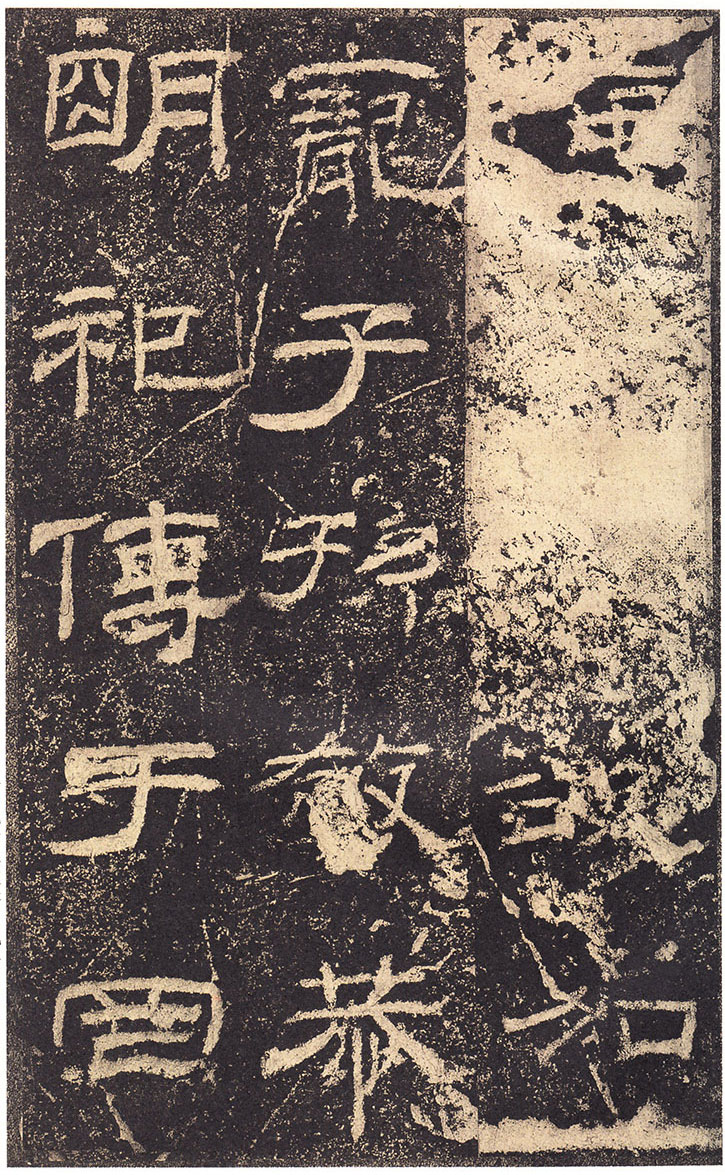
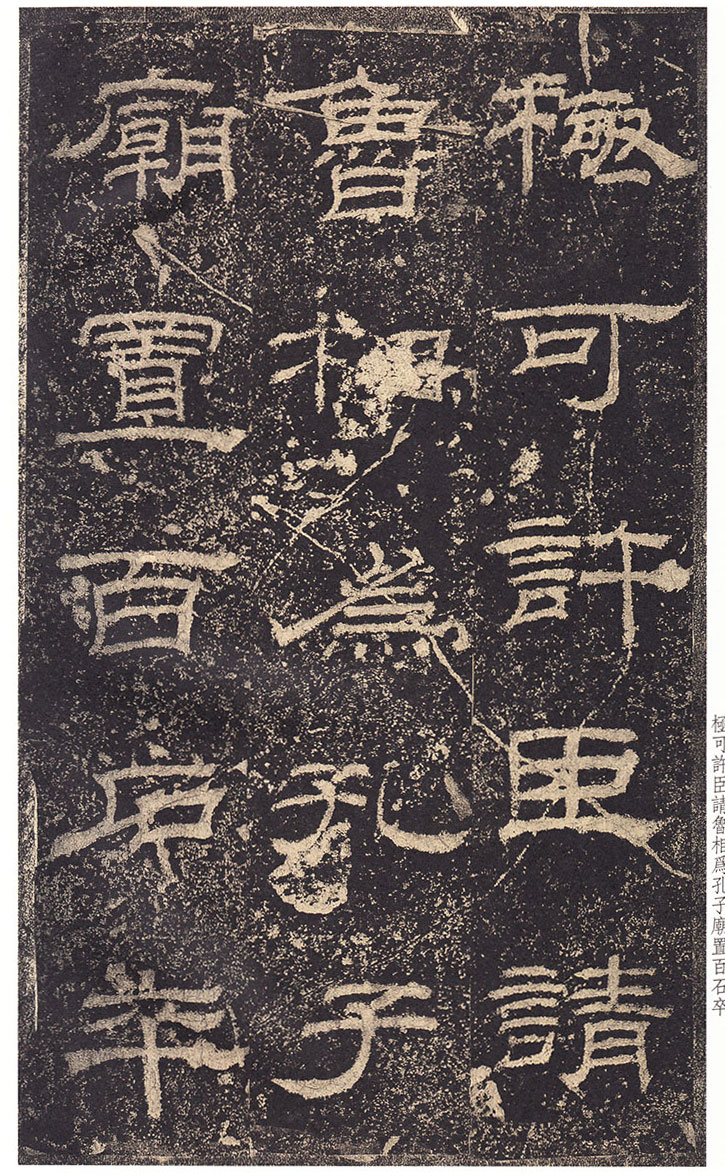
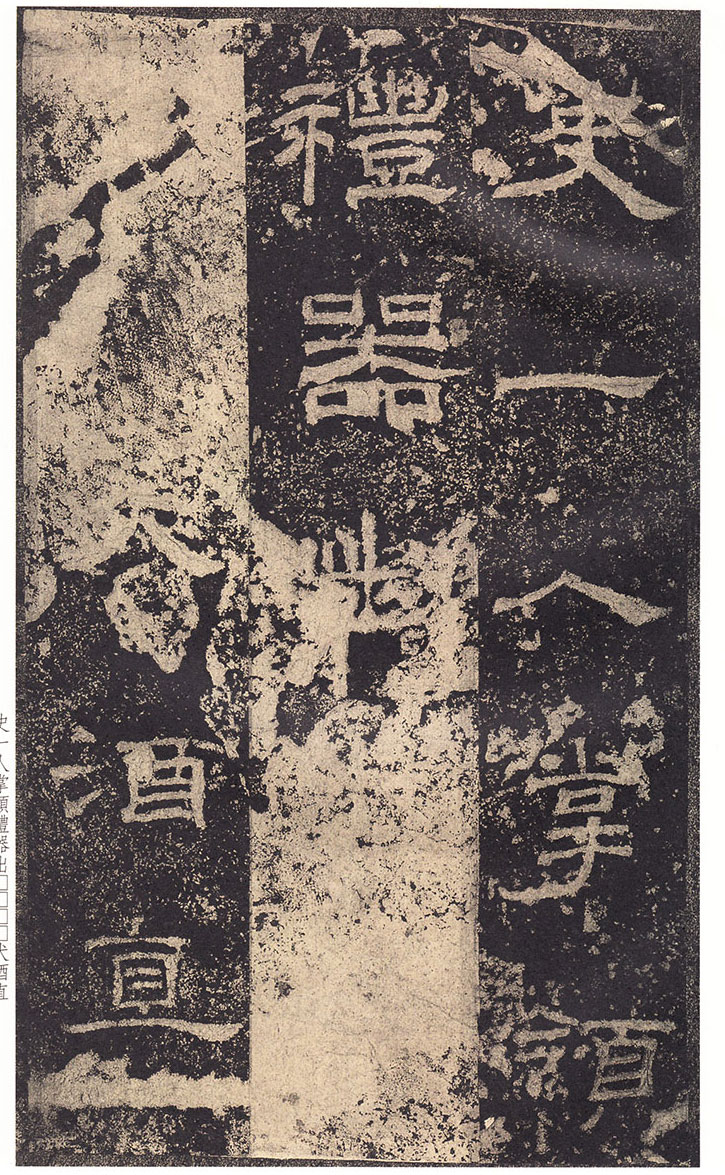
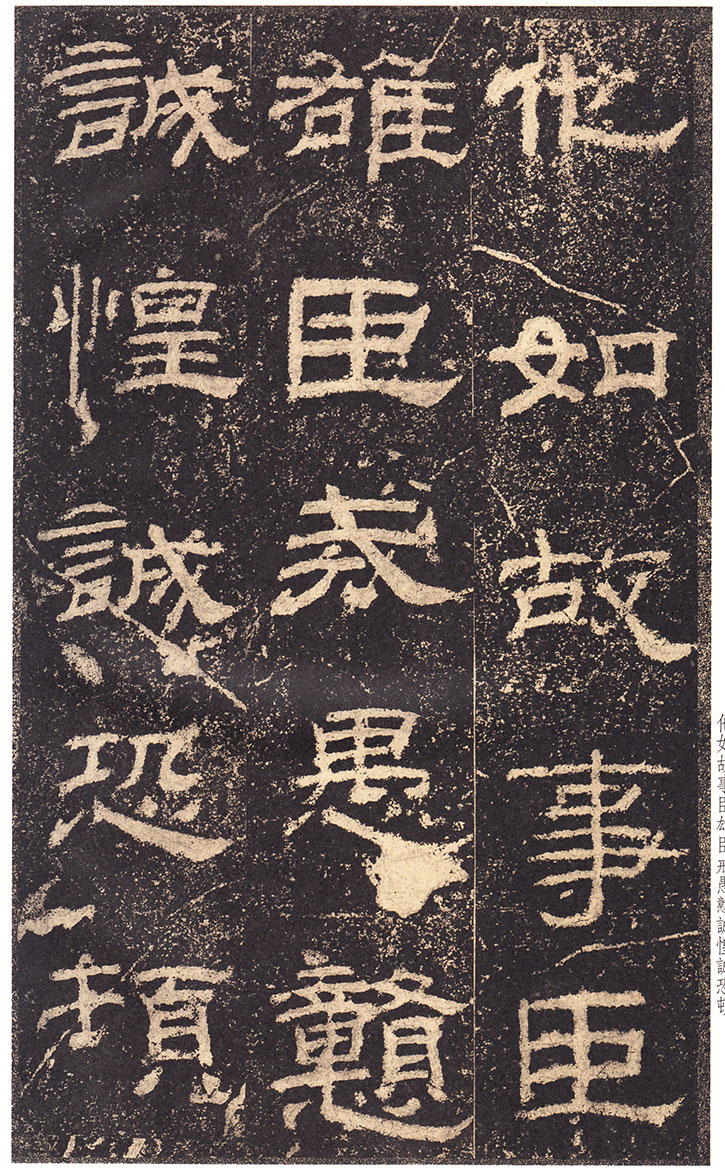
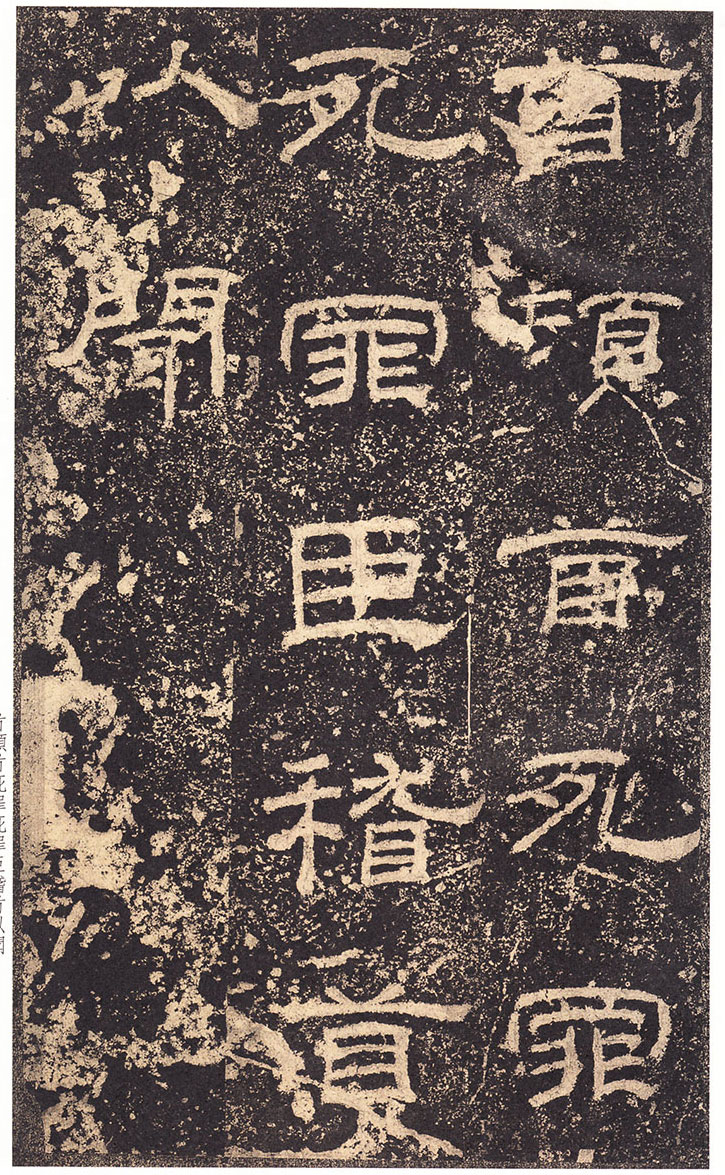
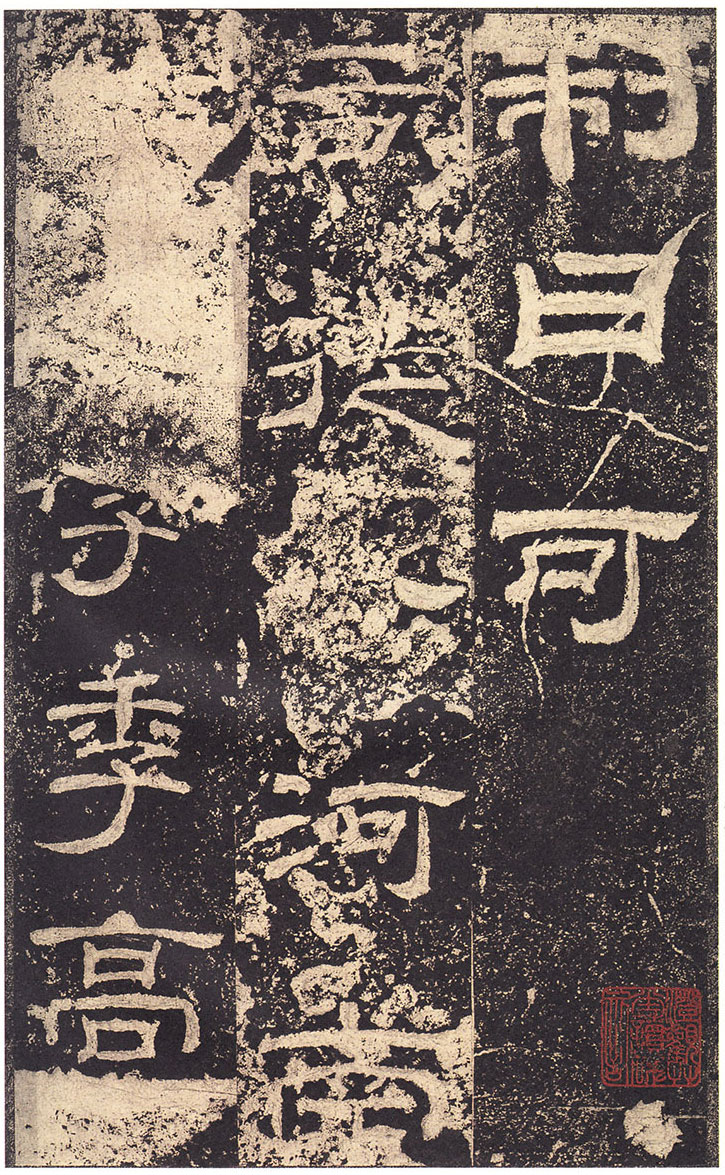
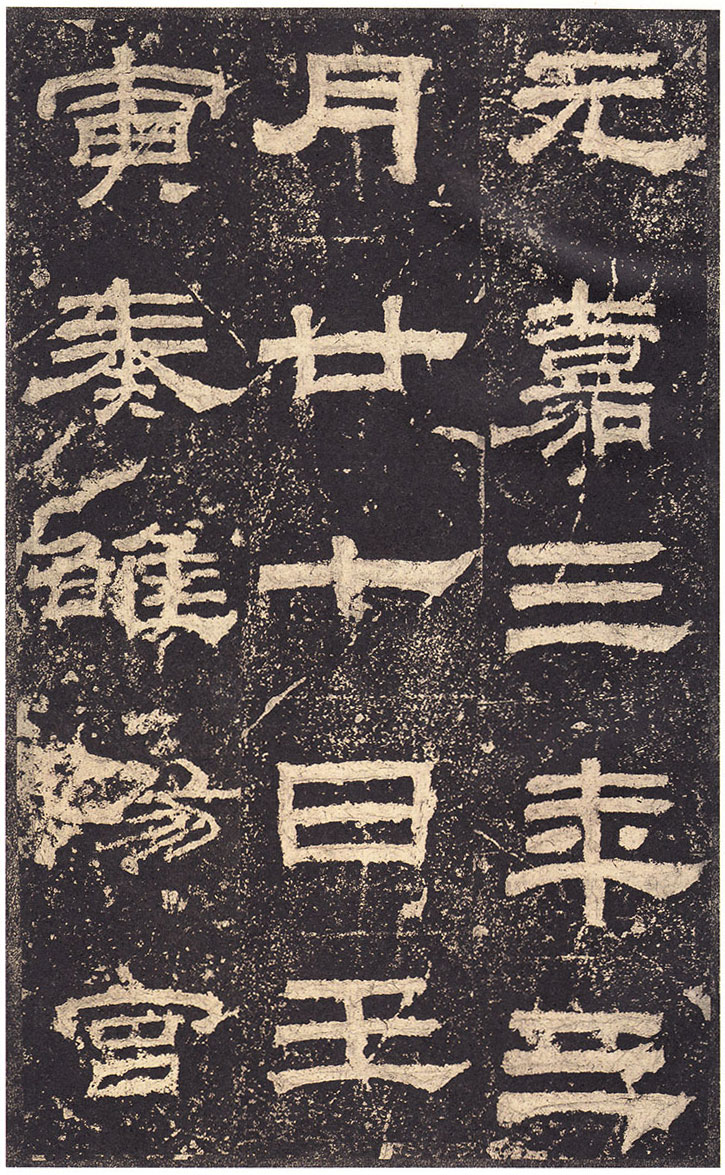
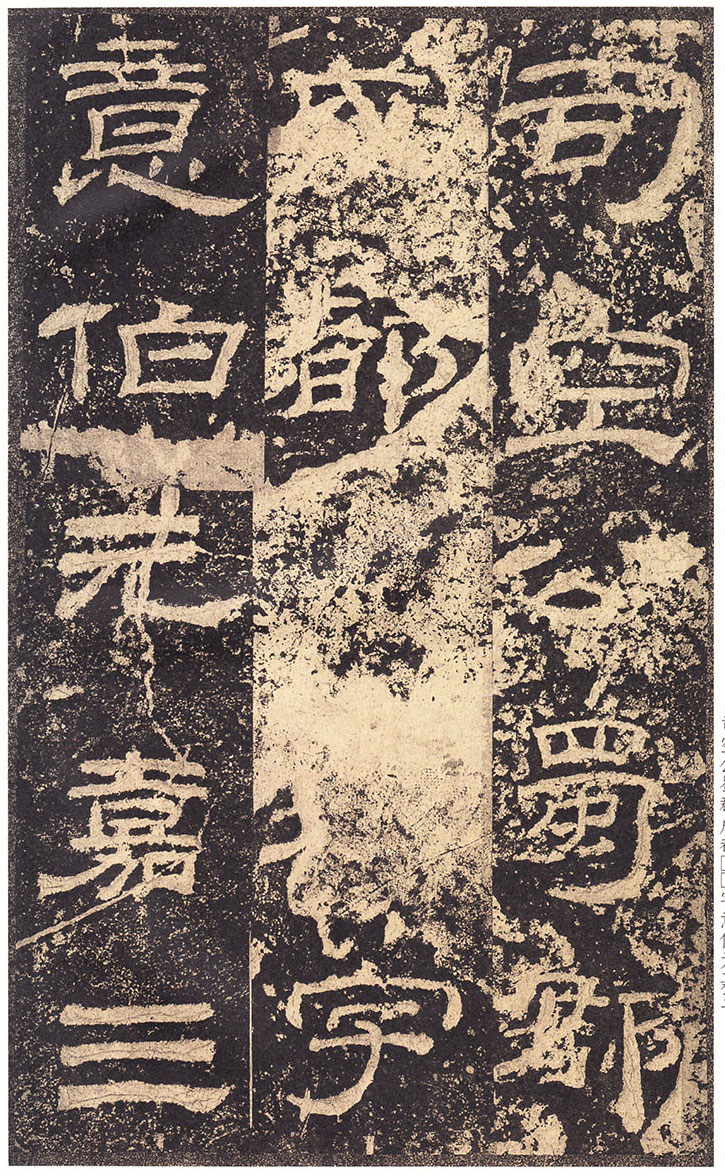
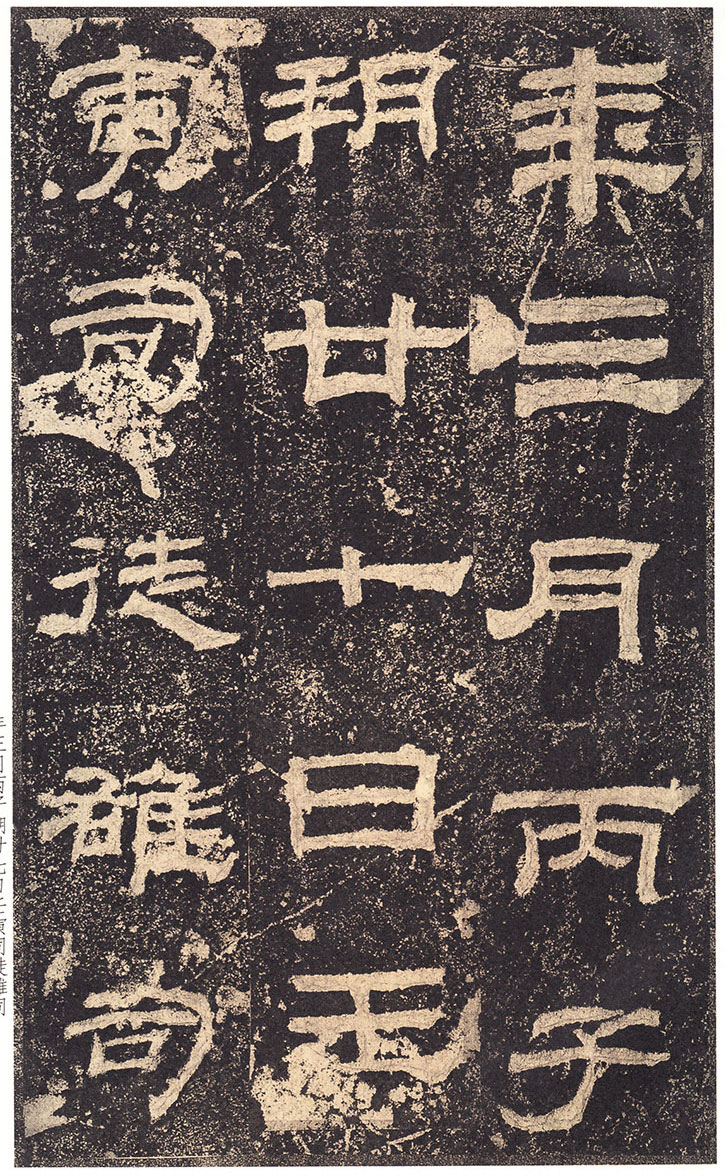
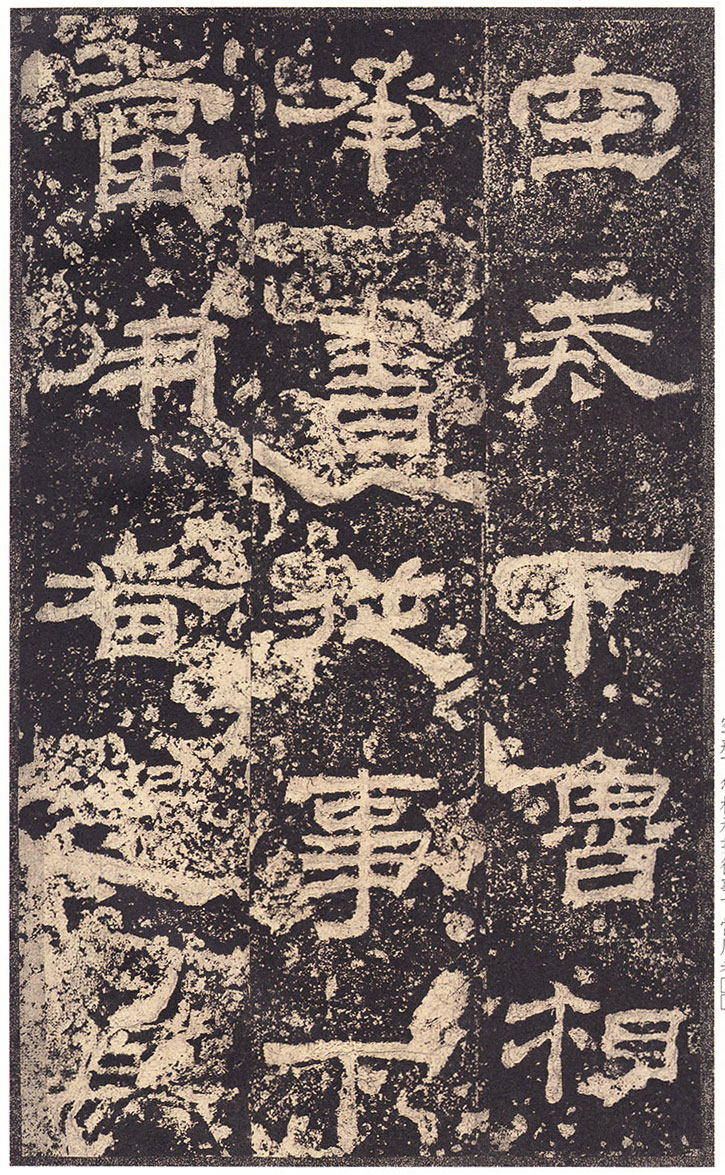
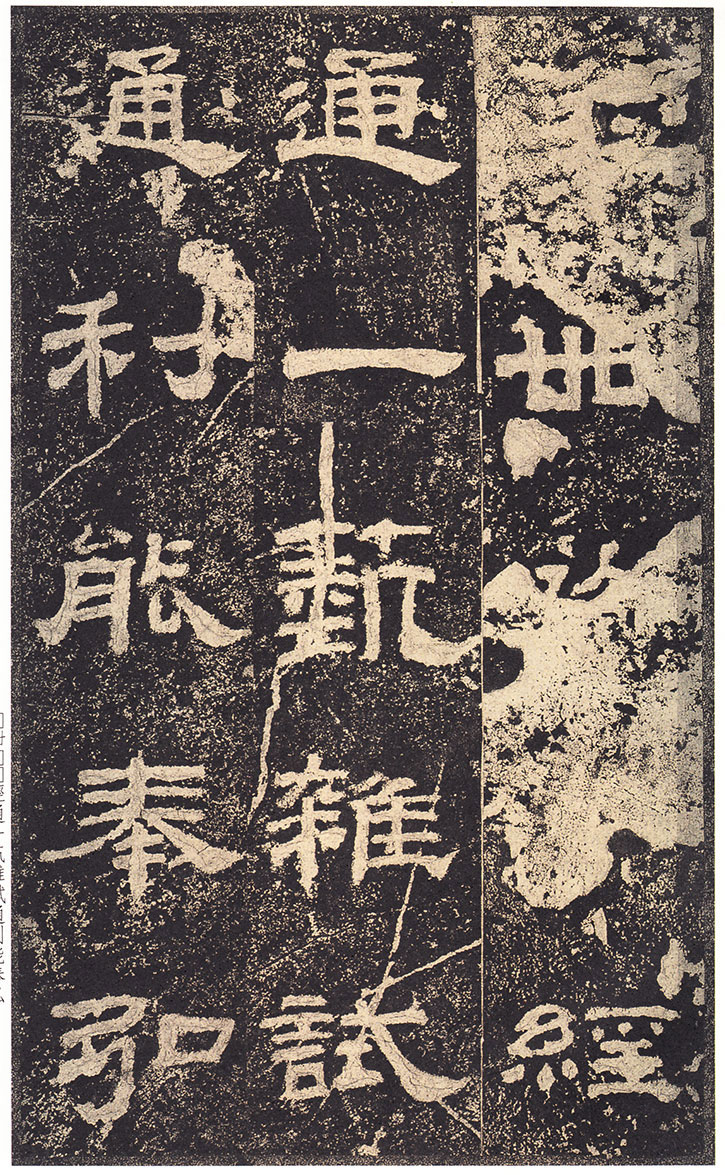
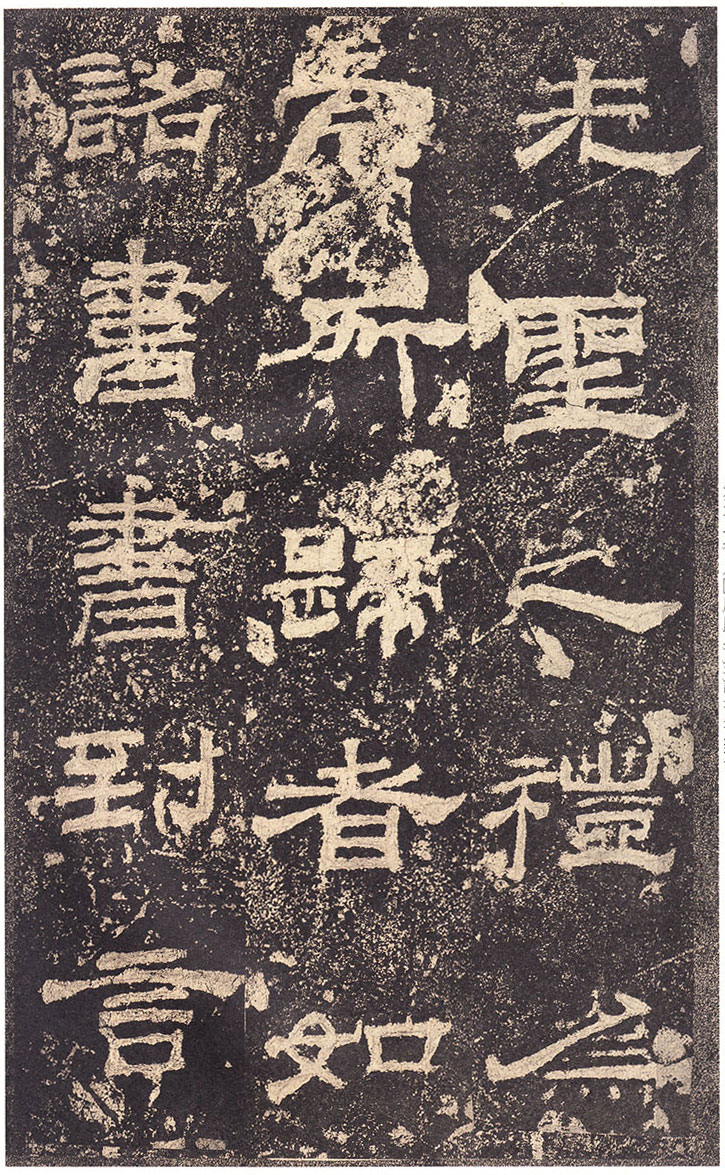
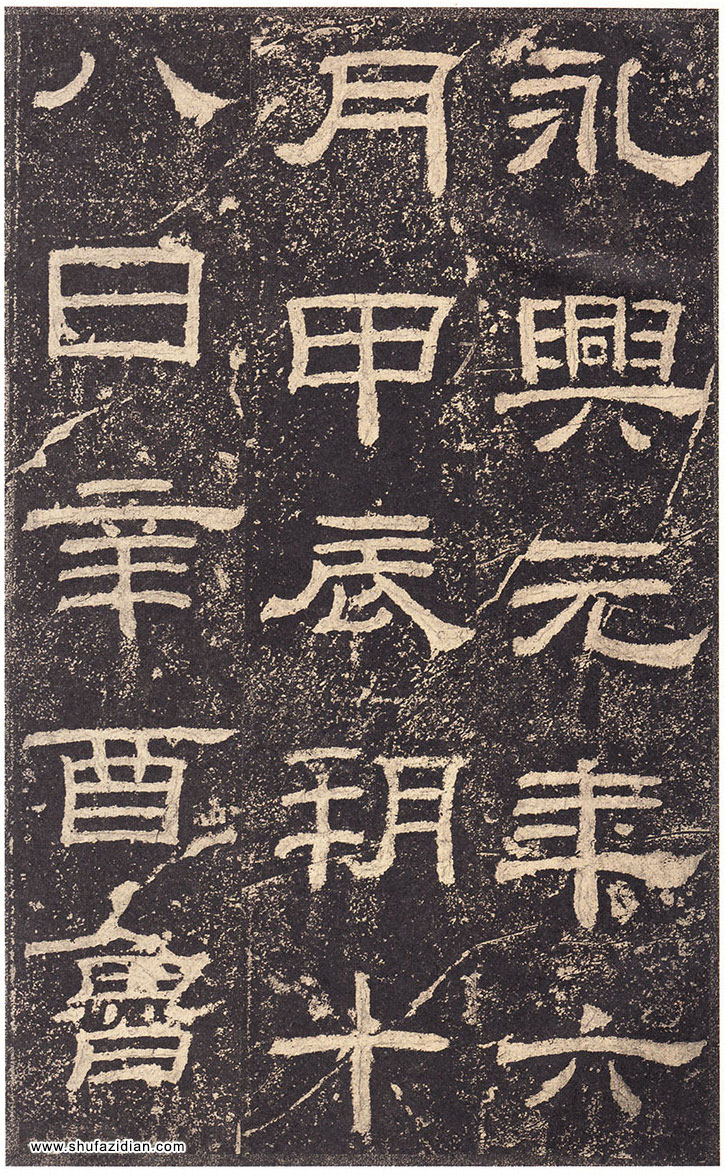
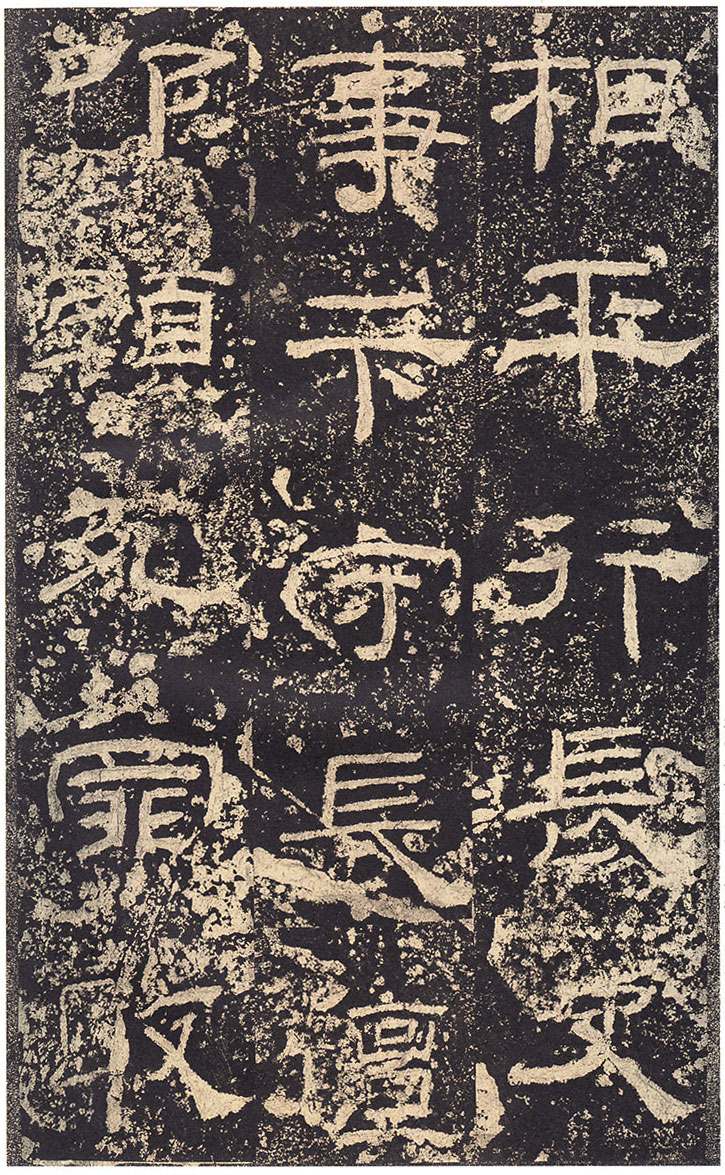
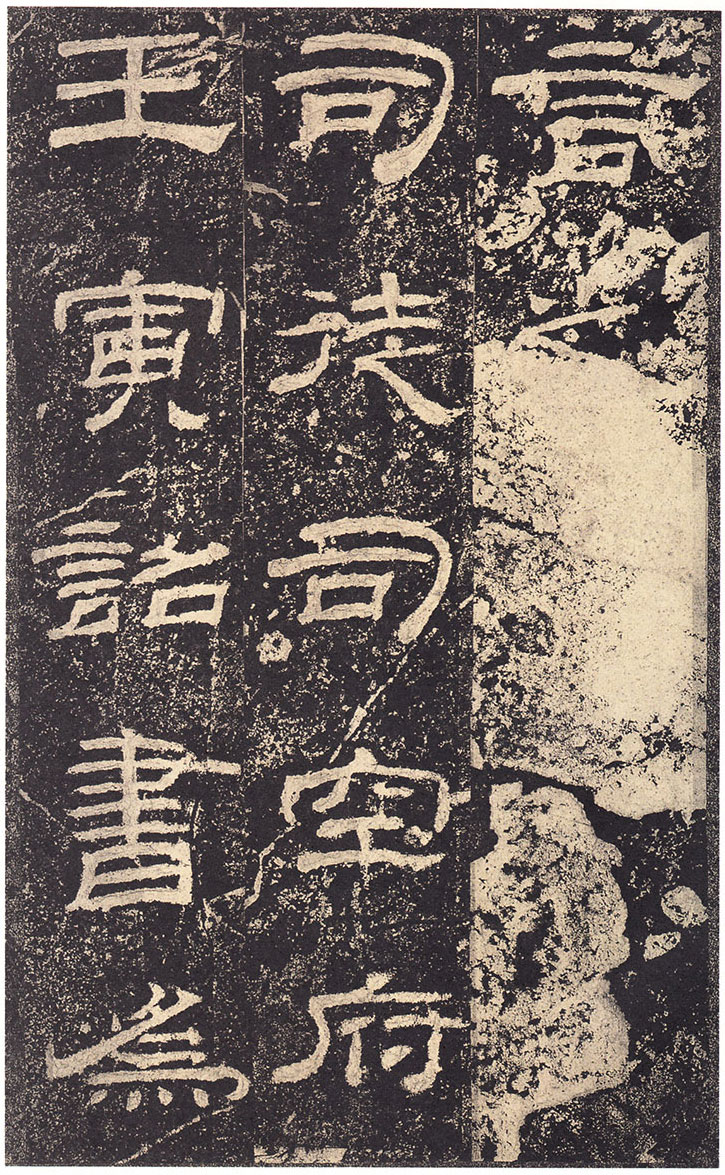
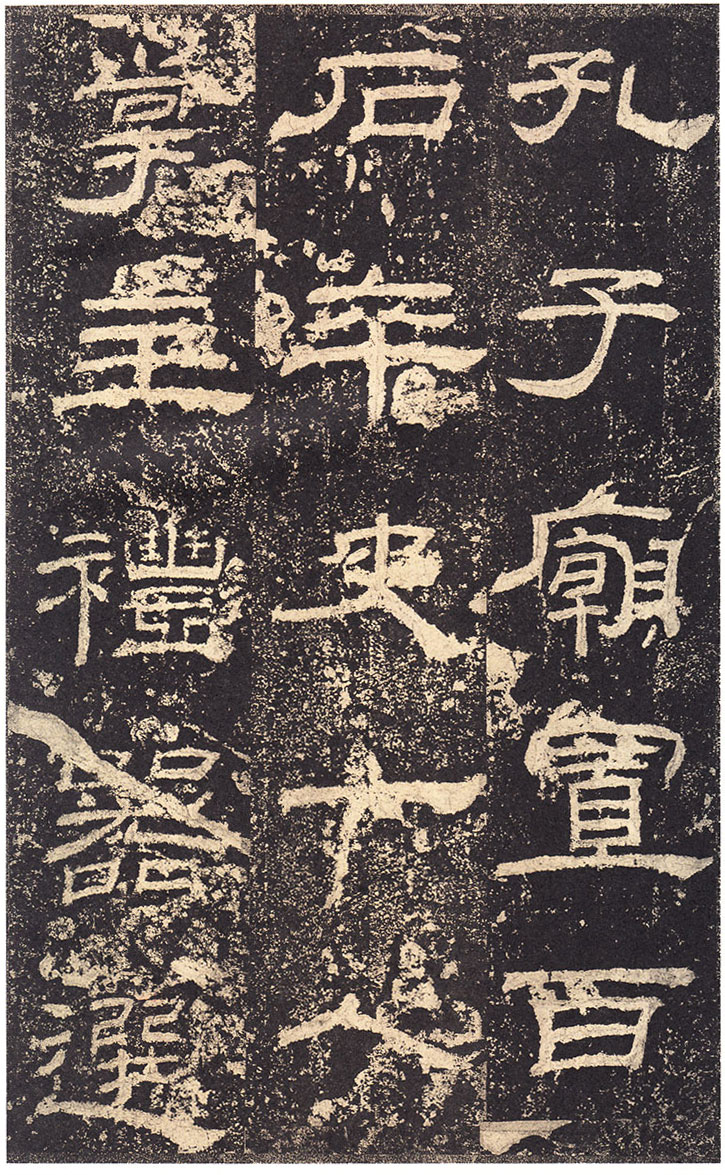
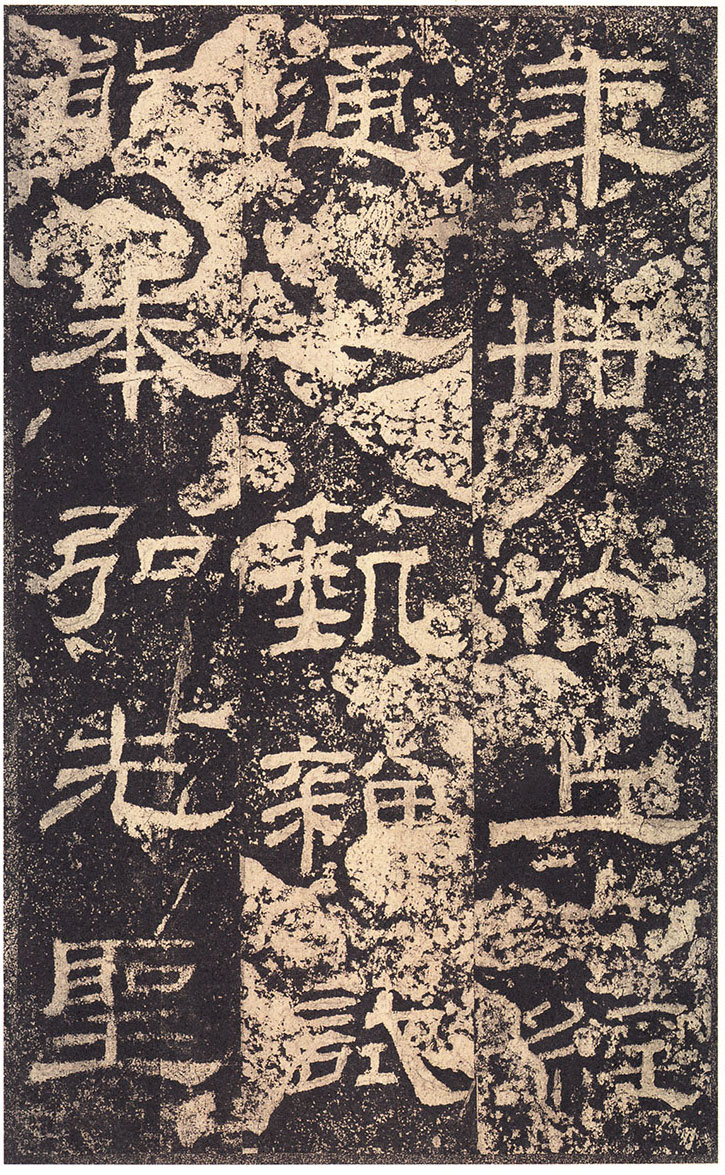
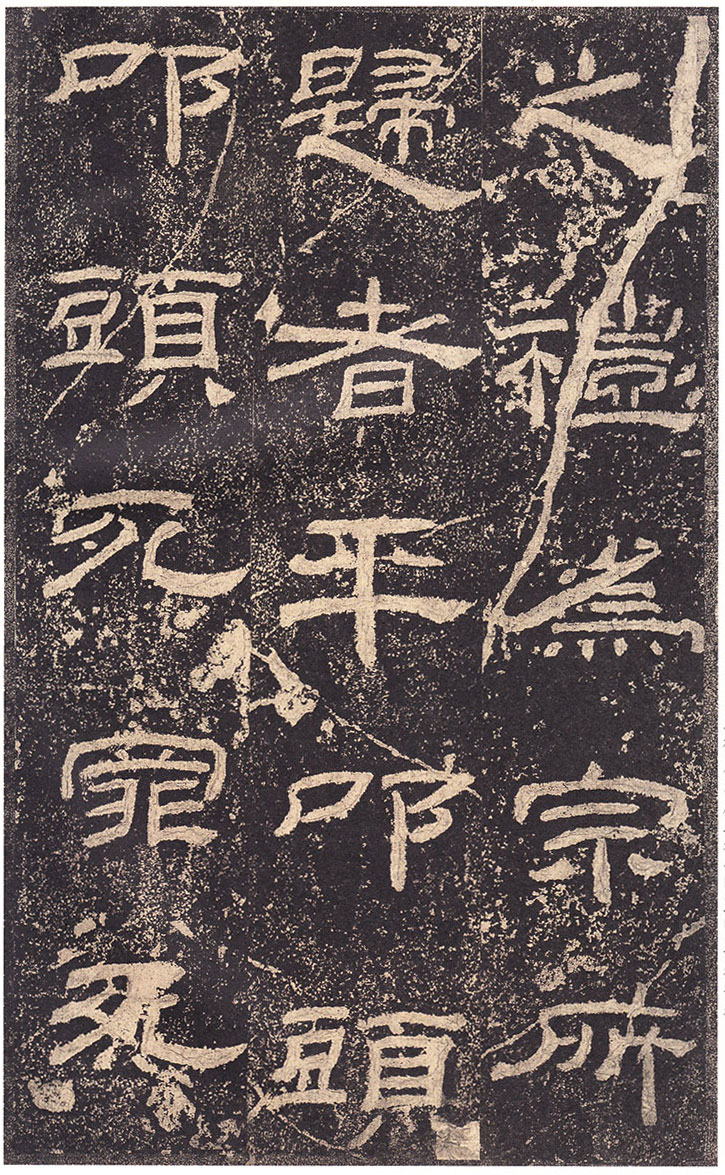
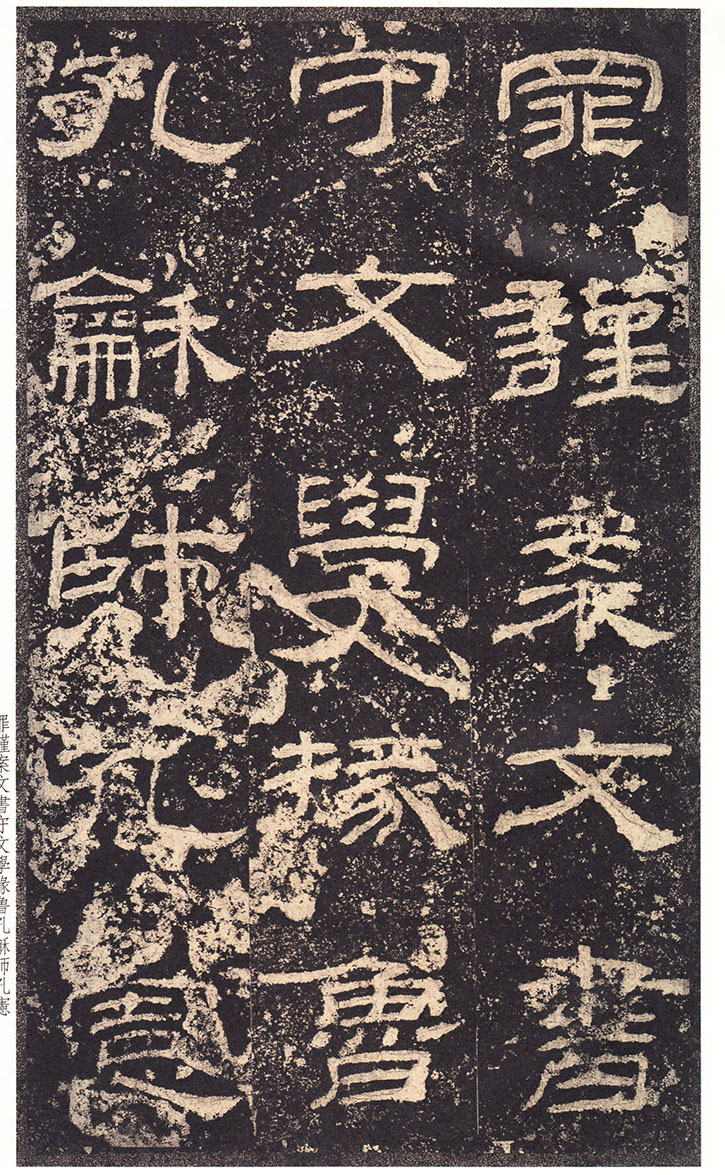
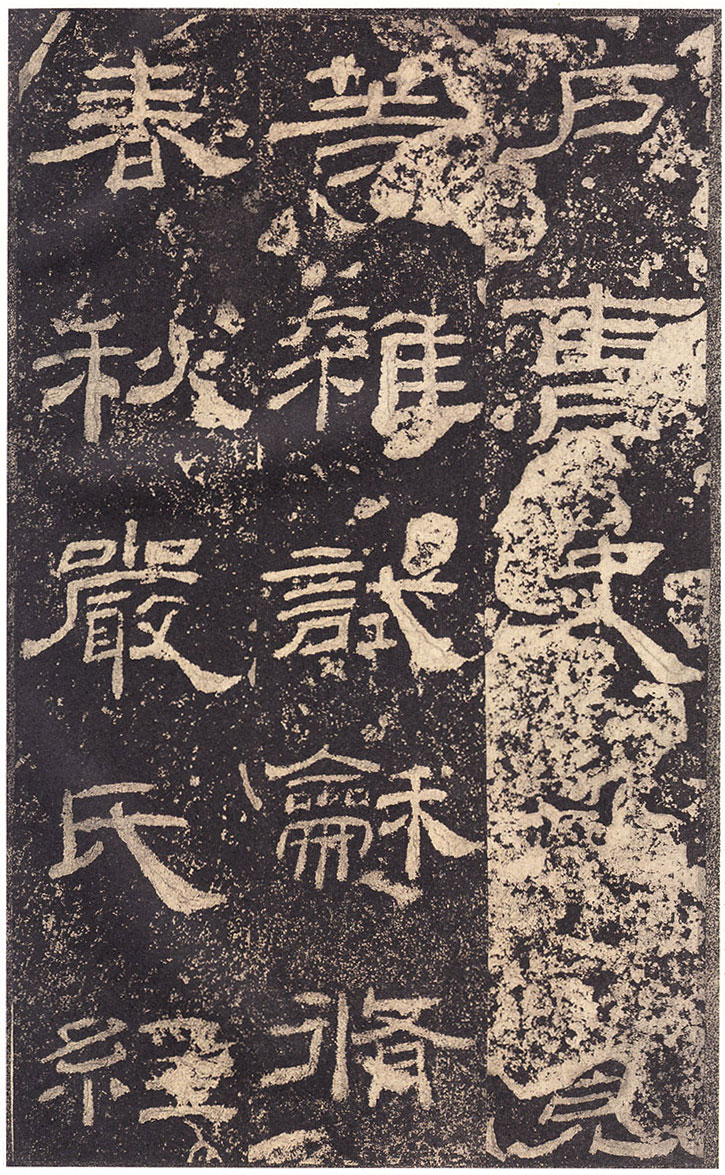
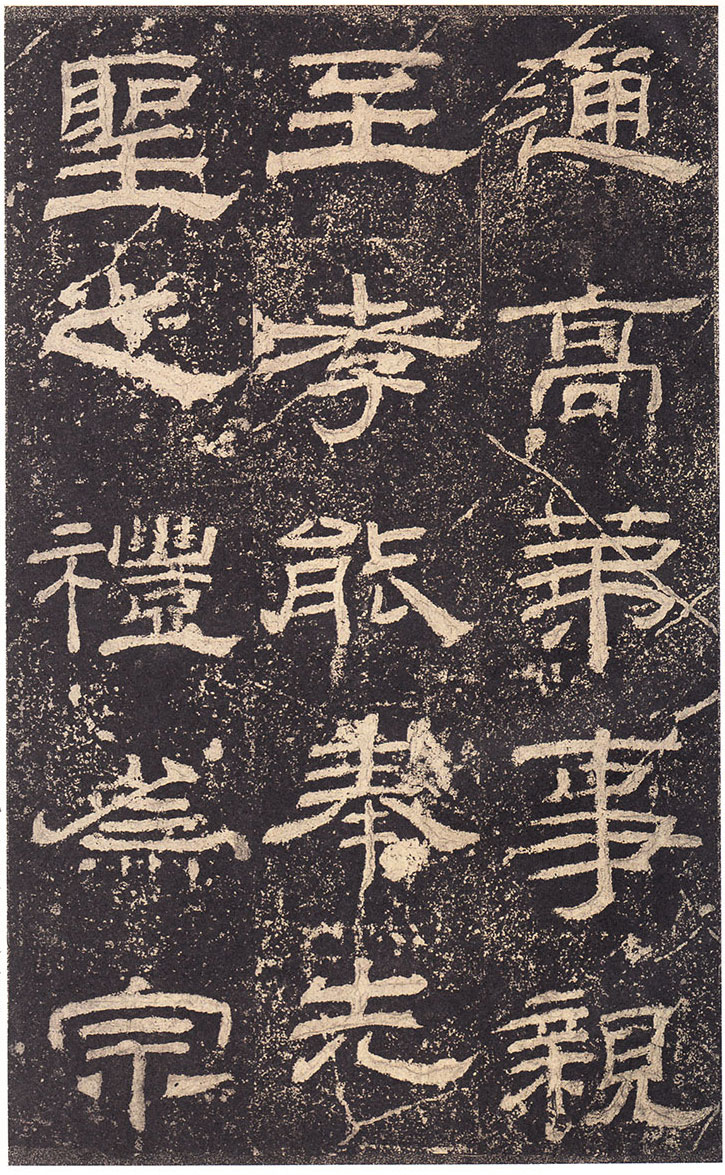
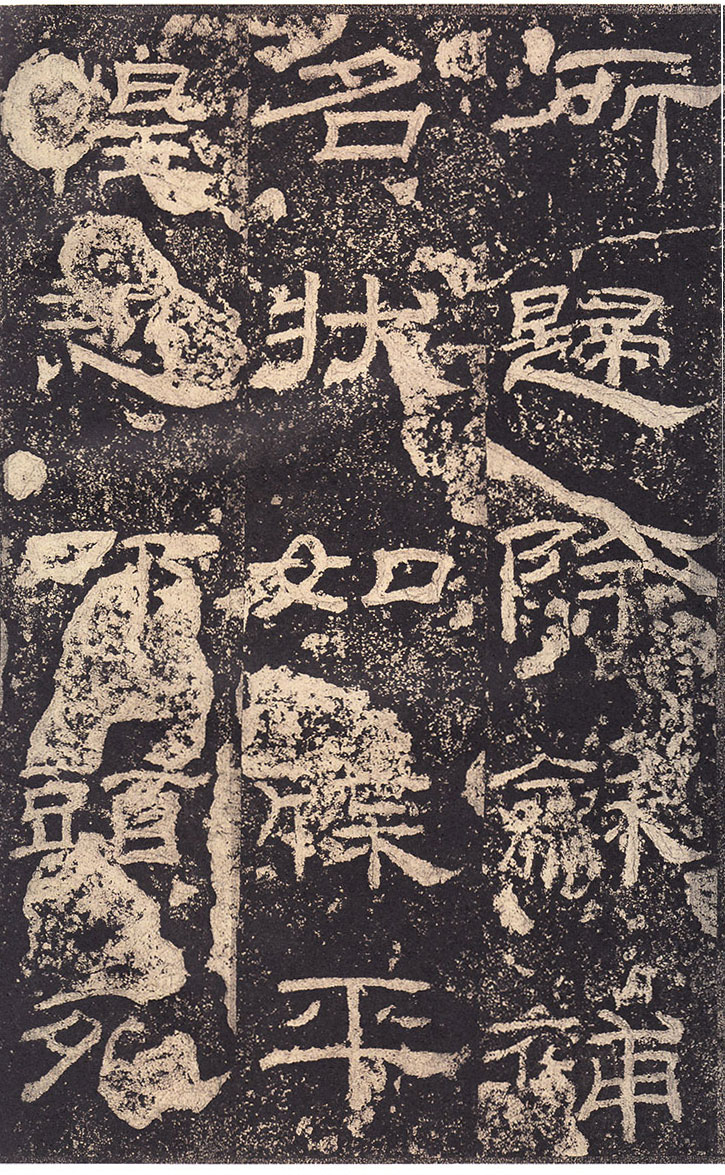
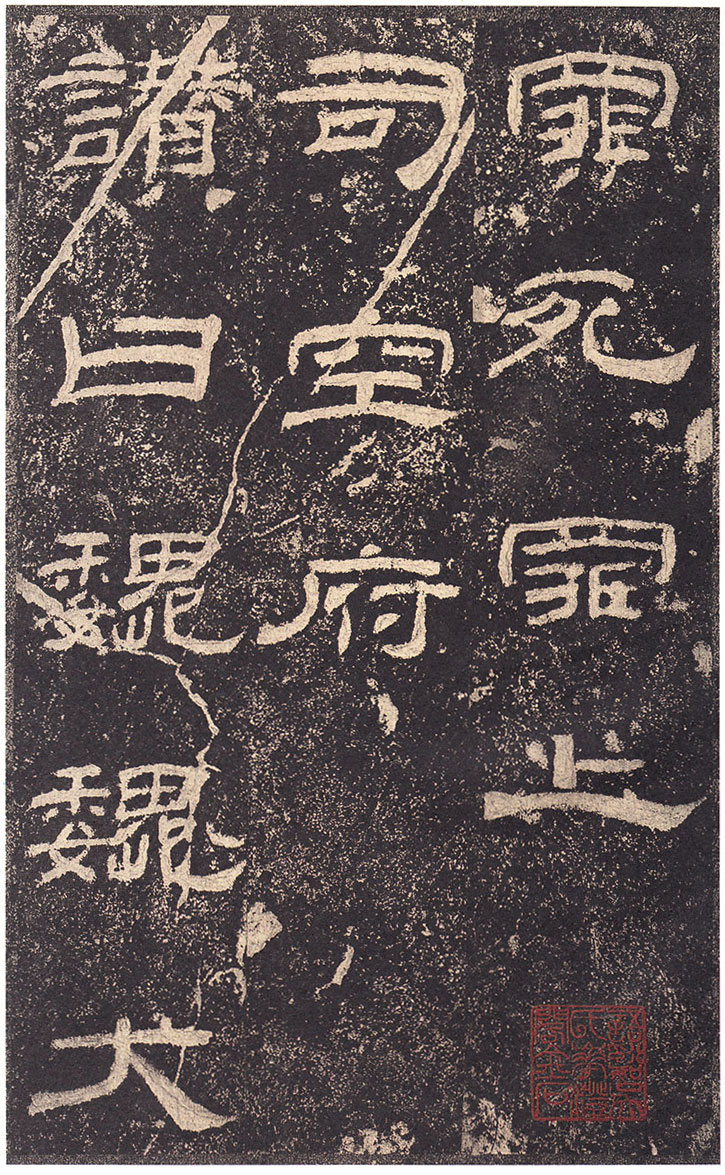
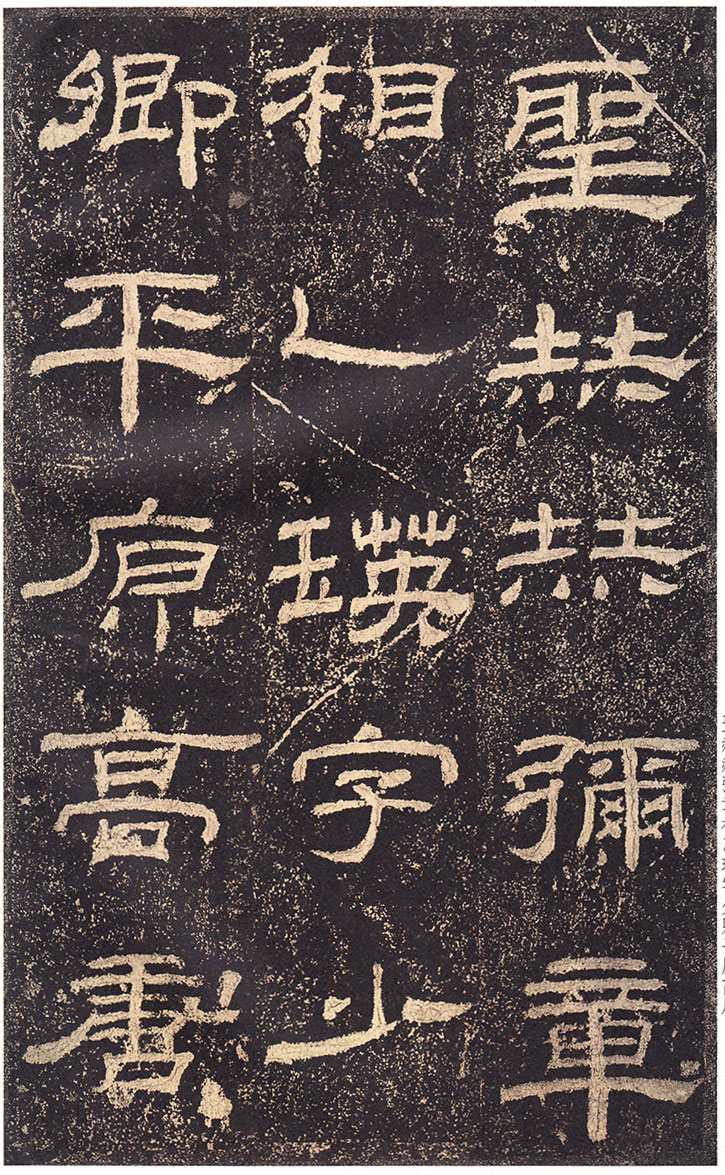
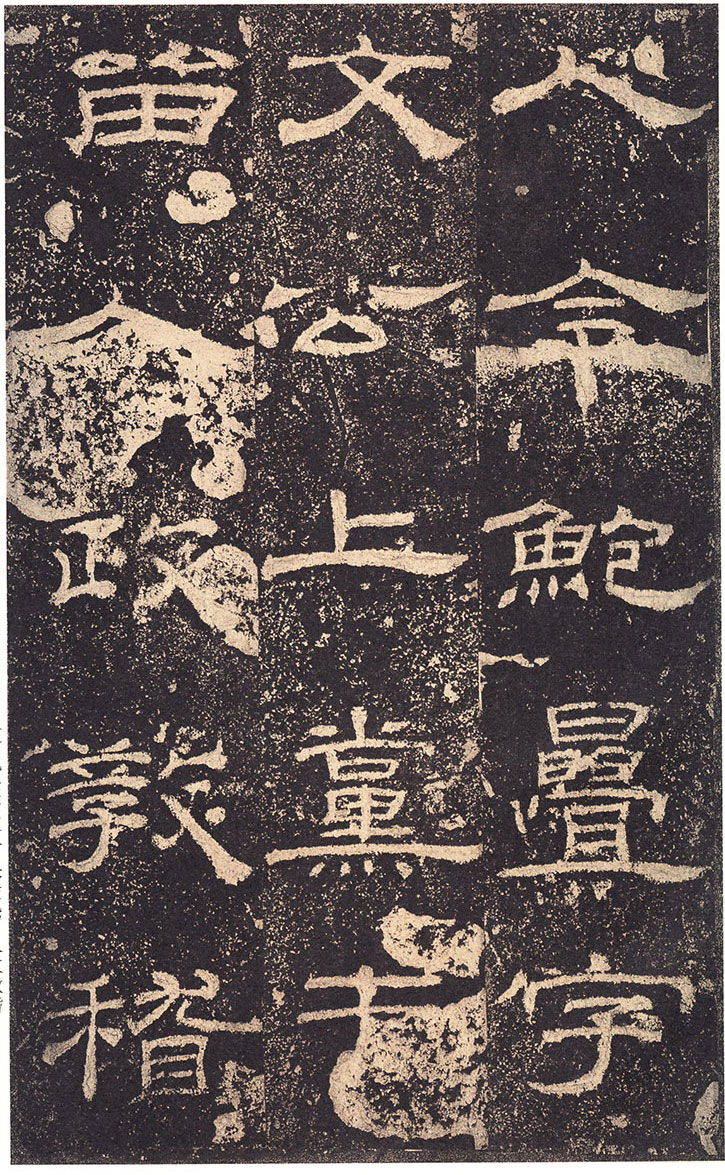
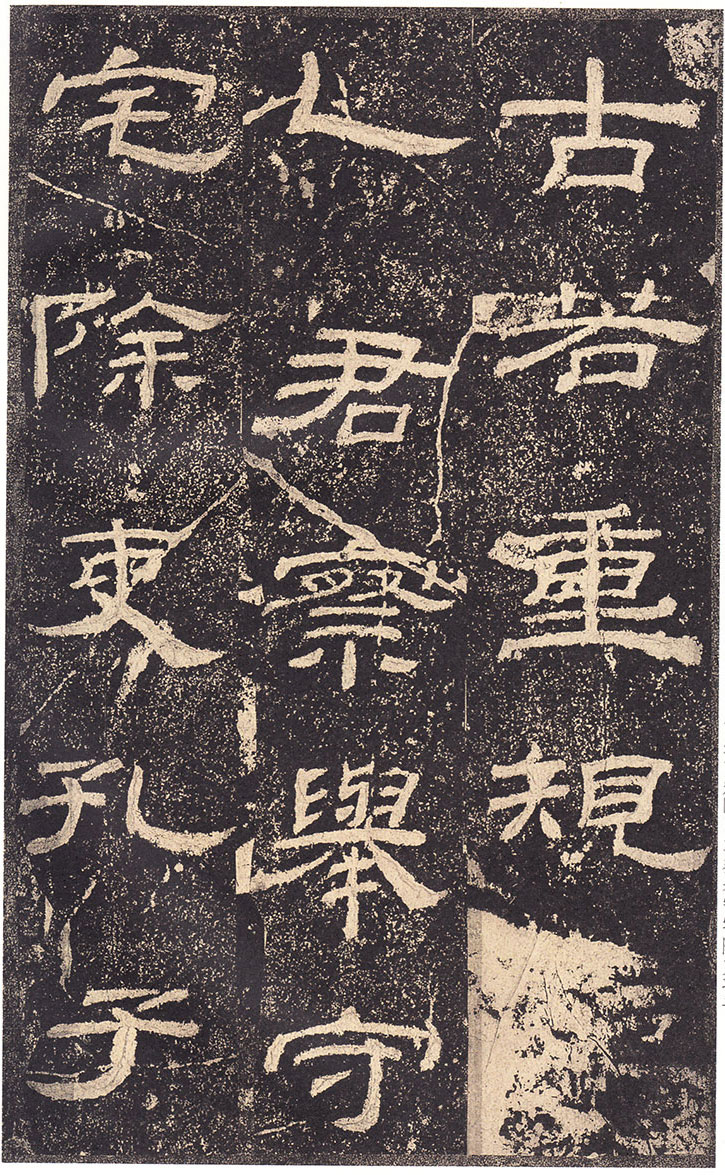
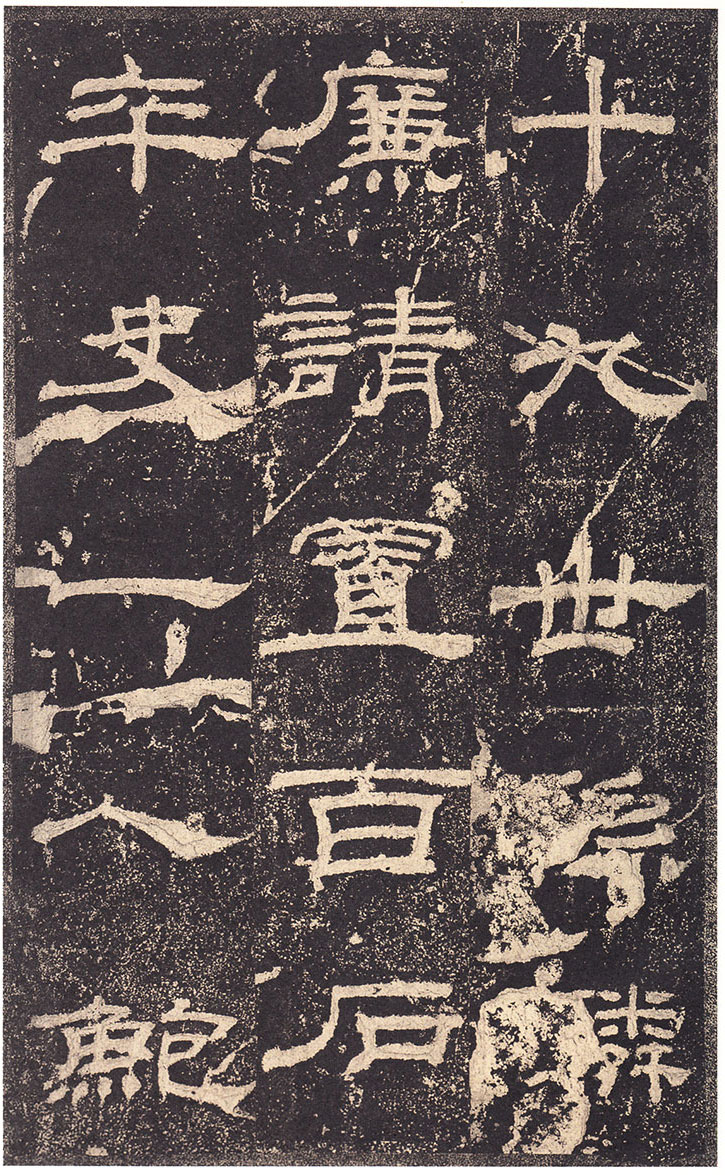
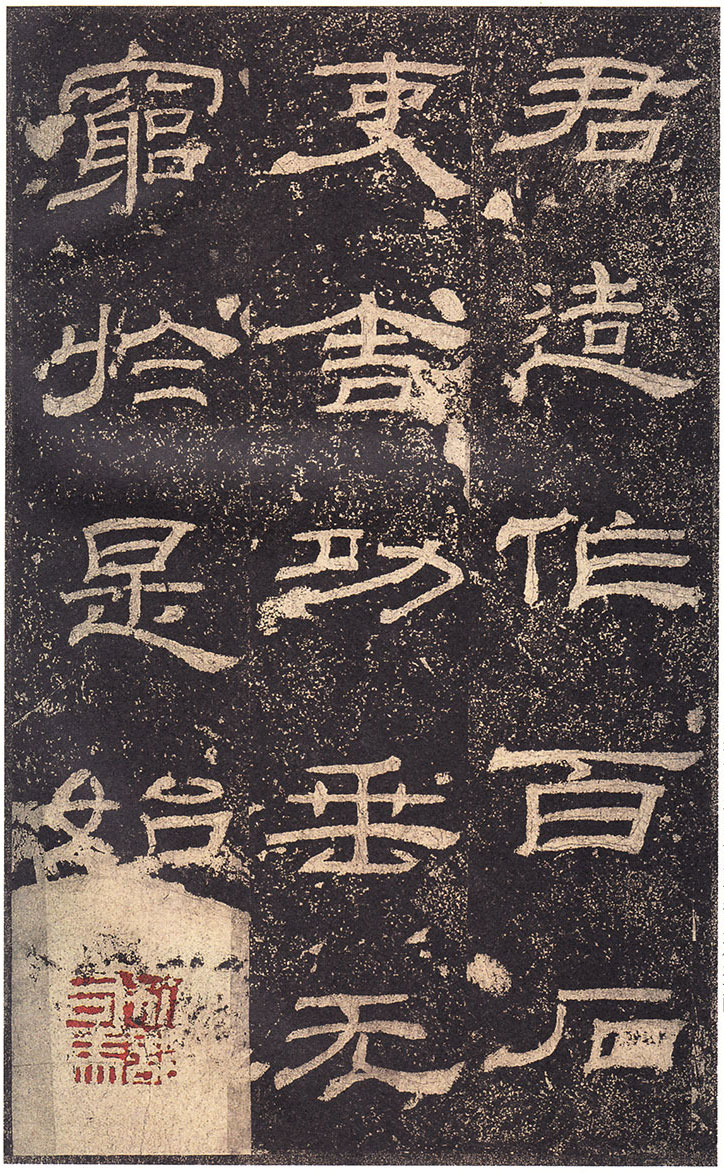
Reminder:
Zhao Kan of the Ming Dynasty: The narrative is simple and ancient, and the legal system is powerful. It makes people want to see the style of the Han people, and there is no need to follow Yuan Chang. ("Graphite Engraving")
Fang Shuo of the Qing Dynasty: "Yi Ying" was established in the first year of Yongxing. It is the first among the three steles. The square and thick characters are enough to describe the beauty of the ancestral temple and the wealth of the officials. Wang Zhulin, Taishi, said that he was ancient, and Weng Tanxige said that his flesh and blood were well-proportioned, his emotions and prose were fluent, and he was the most worthy of learning from the Han Dynasty. ("Pillow Sutra and Epigraph")
Liang Qian, Qing Dynasty: It is appropriate to start from the "Yi Ying Stele" when studying official script. There are many "Zhang Qian" in recent times, which is also appropriate. ("Pingshu Tie")
Bao Shichen of the Qing Dynasty: A branch of the Western Jin Dynasty. "Tai Gong Wang Bei" is the successor of "Yi Ying". ("Art Boat Shuangji")
He Shaoji of the Qing Dynasty: Pu Xiang emerged quickly and opened up a new branch of Junli, but he had a solemn and solemn air. ("Dongzhou Caotang Jinshi Postscript")
Kang Youwei of the Qing Dynasty: After the founding of the People's Republic of China, it became Bo Teng, and seal script and official script were separated. Therefore, the steles such as "Heng Fang" and "Yi Ying" were extremely flat, and the waves were separated from the back, so the official body was completed. ("Guangyi Zhou Shuangji")
Kang Youwei of the Qing Dynasty: As for Li Fa, the physical Qi is more beneficial; for Xuhe, there are "Yi Ying" and "Shi Chen". ("Guangyi Zhou Shuangji")
The original text of Yiying Monument:
Situ Chenxiong, Sikong Chenjie, Jishouyan, Lu Qianxiang Ying's words, edicts advocating the holy way, Mian □ [Art], Confucius wrote the Spring and Autumn Period, made the Filial Piety Classic, □□ the Five Classics, performed the Yi [Xi] Ci, the latitude and longitude of heaven and earth, In order to praise the gods, a temple was specially built. Come to the temple at four o'clock, and the matter is gone. The temple has ritual utensils, and there is no ordinary person to take care of them. Please place a hundred stones for one person, and the ceremonial master will guard the temple. Enjoy the spring and autumn rituals, and make money. The money of the Wang family is given to the dog and the wine is straight, and it must be repaid. I would like to ask the general, Cao Cao and Feng Mou of the temple, Shi Guo Xuan's Ci is right, [Story Proposal]□ [Ritual] has not been done, the ancestors of the temple, those who serve the temple, are the descendants of Confucius , the great slaughter, the great blessing order each have one person, all are prepared with titles, the great Chang Cheng supervises the temple, the Henan Yin [gives] cattle [sheep] and one to each, the great secretary of agriculture gives rice to the temple, the minister is foolish to think that it is like Ying Yan , the great sage Confucius, the elephant is like a stem, made in the Han Dynasty, respected by the ancestors, used in the ancestral hall [sacrifice], long □ [preparation] □, [now wants] to favor the descendants, [reverence] respectfully worship, passed down to Wangji , maybe, I asked Lu [Prime Minister] to place a hundred-stone soldier for the Confucius Temple, to be in charge of the ritual utensils. In fear, he paused. It is a capital crime, and the ministers looked up to hear about it. Zhi said: [Situ Gong] River [South] □□□□ [zi] On March 27, the third year of Ji Gaoyuanjia, Renyin reported to Luoyang Palace Division [Kong Gong] Shu [County Chengdu] □ [Jie] Zi Yibo In the third month of the third year of Yuanjia, Bingzishuo, on the twenty-seventh day of the month, Ren [Yin], Situ Xiong, Sikong Jie, the Prime Minister of Lu, inherited the book [from] the matter, and whoever is in charge of it, [select the year] [with]□, Sutra Those who are proficient in one art, and proficient in miscellaneous tests, can serve the sage's gift, and be [return] to the [zong], such as the edict, the letter says: On the 18th day of the sixth month of the first year of Yongxing, Xinyou, Lu Xiangping , the governor of history, the chief guard (good), kowtow (head) is a capital crime, [dare to speak], the imperial edict of Renyin of Situ Sikong Mansion is to install a hundred-stone soldier for the Confucius Temple, to be in charge of ritual utensils, and to be selected over the age of , [Classic] Tong [1] Yi, [Za Shi Neng] Those who follow the rites of Hongxian Sage and return to the clan should kowtow and kowtow, which is a capital crime. They should keep the documents carefully and keep the literature. Lu Konghe, the teacher [Confucius] Xian, household [Cao Shi, Kong Kuan, etc.] miscellaneous examinations, and Xiu Chunqiu Yan family, passed high ranks, served relatives with utmost filial piety, could serve the sage's rites, and returned to the clan. 〕, Ping [fearful of kowtow and die] was punished with death. The superior, Kongfu, praised: The great sage, the illustrious seal, Xiang Yiying, courtesy name Shaoqing, a native of Pingyuan, Gaotang Dynasty, ordered Bao Die, courtesy name Wengong, to stay in Shangdang [tun]. In the political and religious history, if rules and regulations are important, Jun Yi will inspect the officials, guard the house and eliminate the officials. In the nineteenth century of Confucius (Sun Lin), Lian asked for a hundred-stone officer to be killed, and Bao Jun built a hundred-stone official house, and his merits are endless, so Beginning.
Explanation of Yiying Stele:
Situ Wu Xiong and Sikong Zhao Jie kowtowed and said: Former Lu Prime Minister Yi Ying wrote a letter saying: The emperor once issued an edict to respect the ways of saints and encourage learning of the six arts. Confucius wrote the "Spring and Autumn" and "The Classic of Filial Piety" and deleted the Five Classics. Interpret the "Xici" of the Book of Changes, etc. In order to better manage the world and praise the god (Confucius) for a longer time, this temple was built. Although Marquis Baocheng (the leader of the descendants of Confucius) could come to the temple to offer sacrifices in all seasons, he would leave immediately after the sacrifices. There are still many sacrificial vessels in the temple, which are usually not managed by anyone. Therefore, it is requested to set up a Shi Shi with the official rank of Bai Shi to preside over, manage and protect the affairs of the Confucius Temple.
If gifts for sacrificial purposes in the spring and autumn seasons, such as sacrificial animals (horses, cattle, sheep, etc.) and alcoholic beverages, are determined to be paid for by the public, the amount of the money needs to be reported. I respectfully asked Feng Mou and Guo Xuan, the ancestral officials of Taichang's subordinates. . They replied: According to the past precedent of Taixue (Piyong), before the ceremony is held, the saints and teachers must be sacrificed first. The people accompanying the sacrifice include one of Confucius's descendants, one of Da Zai Ling, and one of Tai Zhu Ling. They all hold wine vessels. Taichang Cheng supervises the sacrifice. Henan Yin offers sacrifices such as cattle, sheep, pigs, and chickens, and Da Si Nong offers rice. , perform sacrifices. The foolish ministers Situ Xiong and Sikong Jie thought that, just as Yi Ying said, the great sage Confucius formulated laws and regulations for the Han Dynasty based on the Xiang Gua of Qian and Kun, which had long been respected and followed by the ancestors. There are many livestock used in sacrifices (cattle, sheep, pigs, chickens, etc.), as well as sacrificial vessels used by chiefs and officials. Today I want to pamper Confucius's descendants even more so that we can carry out sacrificial activities more respectfully and pass them on forever.
You can grant the minister's request and agree to Lu Xiang Yiying's proposal to set up a 100-stone soldier for the Confucius Temple, let him take charge of the ritual utensils, and the public will give money for dogs and wine, following the precedents of similar situations in the past. The ministers Wu Xiong and Zhao Jie were stupid and straightforward. They kowtowed in fear and apologized, and waited for the emperor's reply while kneeling. The emperor issued an edict saying: Yes. Wu Xiong, a former warrior from Henan Province, and Zhao Jie from Chengdu submitted letters. In the third year of Yuanjia of Emperor Huan (AD 153), the twenty-seventh day of the third lunar month was recorded as Renyin, which was reported to Luoyang Palace.
The first day of the third month of the third year of Yuanjia was the concubine, and the twenty-seventh day was the concubine. Situ Xiong, Sikong Jie and the assistant officials and newspapers under Prime Minister Lu are engaged in this matter. The conditions for people to be employed in this matter are: they are over forty years old, they are proficient in one of the six arts, they can also pass the general knowledge test, and they can abide by the rules. , carry forward the etiquette of the sage (Confucius), have high prestige in the clan, and meet the requirements of the imperial edict. The edict has been received and is now reported. The first day of June in the first year of Yongxing is the first day of the sixth lunar month as Jiachen, and the eighteenth day is Xinyou. Lu Xiangping and the acting governor of Bian County, both of whom were experts in matters of history, risked their lives and kowtowed, boldly speaking to Situ and Sikong Mansion. (The imperial edict of Renyin stipulates that a person with hundreds of stones will be installed in the Confucius Temple to be in charge of the ritual utensils. He should be chosen to be aged or above, who has mastered a skill, and who can perform various tests to perform the rites of the ancestors. Those who have returned to the clan should kowtow. Capital crime (capital crime)) This paragraph is Lu Xiangping's retelling of Situ and others. The content is the same as the previous text.
Those who meet the requirements include Kong He from Lu County, who was proficient in writing and was trying to be an official in the Literary Affairs Bureau, his master Kong Xian, and Kong Kuan, the Hucao Shi. After the miscellaneous examination, Kong He once studied the "Spring and Autumn Gongyang Zhuan" The "Yan's School" passed the test successfully and received a high ranking. He is also famous as a filial son. Be able to practice the rites of Confucius and Saint. He has high prestige among the clan. Therefore, his name and relevant information are now written on the official document. I (Prime Minister Lu) was very frightened and kowtowed to apologize. Report to Sikong Mansion. So he praised: Sage (Confucius) who is as majestic as a mountain, your achievements are bright and grand, filling the universe. Lu Xiang Yiying, also named Shaoqing, was a native of Gaotang in Pingyuan. Bao Die, the county magistrate of Qufu, was named Wengong and was a native of Shangdang Tunliu. Their political and religious achievements all followed ancient precepts, were solemn and in compliance with regulations. Lord Yiying, Prime Minister of Lu, inspected and recommended the people who guarded Confucius' residence. He found that Kong Lin, the nineteenth generation grandson of Confucius, was honest and upright, so he appointed him as an official. He also (applied to the emperor) appointed a person named Baishi Zushi to take charge of the affairs of the Confucius Temple. The county magistrate Bao Diejun built a house for hundreds of officials. Their merits will last forever, so they began...

